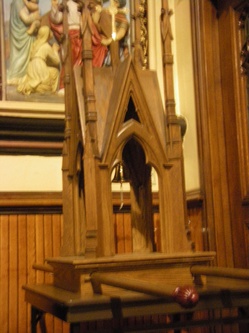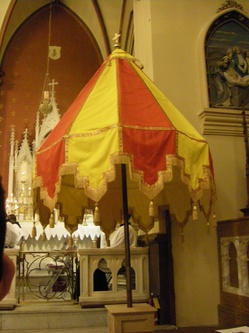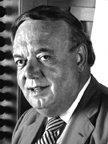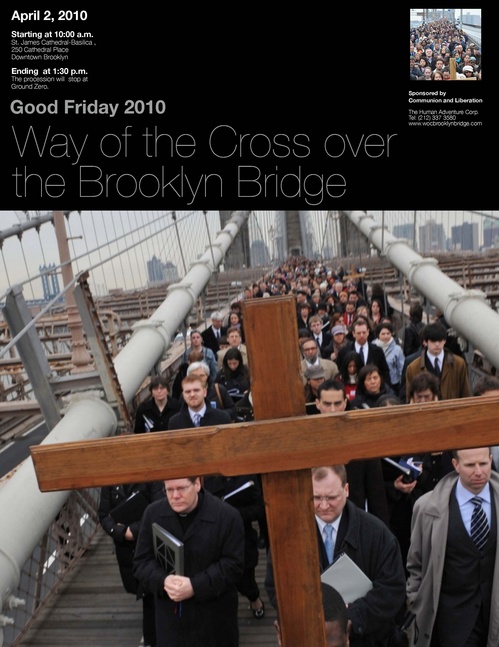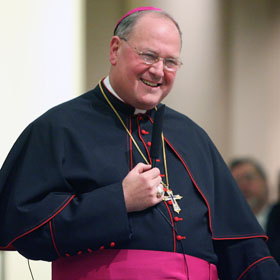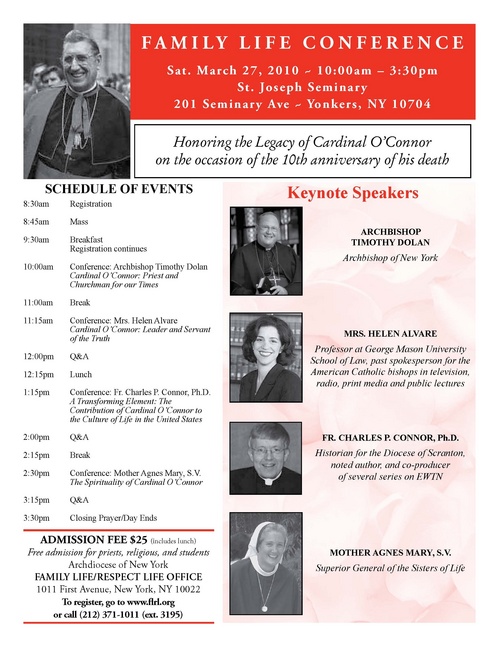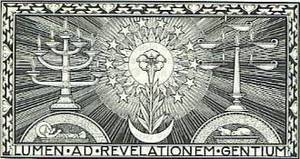February 2010 Archives
My heart has prompted me to seek your face; I seek it, Lord; do not hide from me.
The Church observes the Second Sunday of Lent. The following hymn incorporates the texts from sacred Scripture.
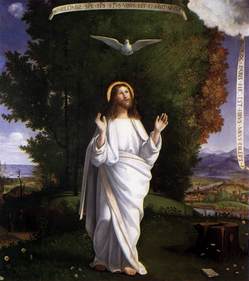
Gone forth from home with God to guide him,
Abram looked up and saw the sky:
"Even as stars you cannot number,
So shall your offspring multiply."
God there with Abram cov'nant made,
Promise that shall not change or fade.
Jesus went up upon the mountain,
And there, transfigured 'fore their eyes,
Saw the disciples "law" and "prophets,"
Standing there next to Jesus' side.
"This is My Son, " they heard the voice;
"Listen to Him, He is My choice!"
Each of us, baptized in Christ Jesus,
Is launched on journey hard and long
Where we are daily called to cov'nant,
Following Christ with joyful song.
Do not give way! Now faithful bide,
Clinging to Cross as boast and guide!
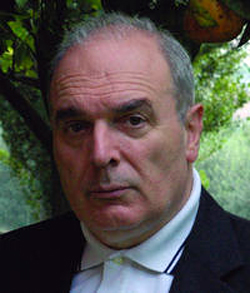 On February 26th Zenit published an article by Father Massimo Camisasca looking at what he considers to be the pillars (prayer & Liturgy) of priestly reform in the Catholic Church. Reading a bit of Church history recently there's been a lot to consider when thinking about the state of the Catholic Church viz. the rise of Portestantism and then the decline of the Christian religion in some parts of the
On February 26th Zenit published an article by Father Massimo Camisasca looking at what he considers to be the pillars (prayer & Liturgy) of priestly reform in the Catholic Church. Reading a bit of Church history recently there's been a lot to consider when thinking about the state of the Catholic Church viz. the rise of Portestantism and then the decline of the Christian religion in some parts of the
Statistical data of the past 30 years reveals an increase of 5% more diocesan priests worldwide, compared with an increase of 48% more baptized persons.
This alone could explain the question in the title of my latest book, "Padre ci saranno ancora sacerdoti nel futuro della Chiesa?" (Father, Will There Still Be Priests in the Future of the Church?) -- a theme that underlies the entire text.
However, even more than the number of priests, the Church is interested in the truth of their experience. For reasons connected with my work as superior of a fraternity of missionaries, I travel throughout the world and am in contact with the most diverse realities. And, meeting with priests of different regions, I note that many of them experience difficulties not so much of an ideological type as of an emotional order.
Why is it that today the priestly life -- which has made thousands of men happy and contributed enormously to the spiritual growth of humanity -- is going through such a profound qualitative crisis?
My [Italian-language] book stems from this question. It is an attempt to rethink the life of a priest from its roots.
Rebirth
The regeneration of priestly life is one of the conditions for the new flowering of Christianity in
I have attempted to trace the path for a rebirth returning to the fundamentals of the priesthood. I find one of those fundamentals in prayer.
Today many priests lose themselves in action, in the infinite number of activities and preoccupations that entrap them. For the action of each one of us to always be a source of nourishment, it must be constantly redirected to our relationship with Christ. And the place of our relationship with Christ is prayer, inseparable from silence.
Silence, prayer, reflection and study are the answer to one of the evils that afflict the figure of the priest: activism, which remains on the surface of things and absorbs the time of our energies and our feelings. Instead, action that stems from charity introduces us in the work of God, who precedes and exceeds us.
Liturgy
Another pillar of the renewal of priestly life is the liturgy. I say this following the teaching of the Pope. I am not ruled by the desire to accommodate myself to a current, but by a profound conviction that is born from experience.
If the priest does not rediscover the true meaning of the liturgy in his life, he cannot find himself.
Surmounting the process of trivialization, which we have witnesses in the last 30 years, it is necessary to return to that "fons et origo" that the Second Vatican Council identifies in the liturgy.
When it is faithful to the one who instituted it, when it is lived in all its rigorous totality and is attentive to the tradition of the Church, the liturgy is the place of education to communion.
The protagonist of the liturgy is Christ. By living the liturgy, we can enter into the life of God, and only thus can we priests be an effective company of men.
In the third place, the emotional question is central in the life of a priest. Loneliness is the other great evil that today afflicts thousands of priests.
Only by discovering himself a son can the priest be a father.
Friendship is a positive experience in a person's emotional life. In the Church there is still much fear of friendship. Pathologies are not channeled if one is not helped to develop a healthy life.
Unhealthy and negative friendships, which because of this are not proper friendships, must not close us off from the essential value of these bonds of preference that open us to the love of others and help us to understand who God is.
Keeping up with Pope Benedict can be a difficult task, even for the strong; the pope does so much work in given week that most people would wilt. However, because he has such an excellent staff, much is possible. Key to understanding Benedict's ecumenical work is his openess to collaborating with the Spirit and with others Chrisians for full visible communion desired by Christ and the Church, particularly since Vatican II. Additionally, his insistence on spiritual ecumenism is always noteworthy because without prayer none of ecumenical diagolue work makes a bit of sense. Plus, the pope raises the all-important matter of harvesting the fruit already done by the churches. So often we work hard on some document or event but fail to assess the fruit of the document or event to see what fruit there is and how it's maturing. The lack of critical and honest engagement with the issues and the prudential enactment of the dialogue is fraustrating to lots of people. It is likely that many people have missed the news of of the Pope's recent meeting with a delegation from the Evangelical Luthern Church in America (ELCA) on Wednesday, 10 February 2010, where he said (emphasis added):
"Since the beginning of my Pontificate, I have been encouraged that relations between Catholics and Lutherans have continued to grow, especially at the level of practical collaboration in the service of the Gospel. In his Encyclical Letter Ut Unuum Sint, my beloved Predecessor Pope John Paul II described our relationship as "brotherhood rediscovered" (n. 41). I deeply hope that the continuing Lutheran-Catholic dialogue both in the
I conclude by renewing the wish expressed by my Predecessor, during whose Pontificate so much was accomplished on the road to full visible unity among Christians, when he said to a similar delegation from the
Upon you and all those entrusted to your pastoral care, I cordially invoke the abundant blessings of Almighty God.
As a follow-up to a request for prayers for the Dominican sisters in Mosul the other, I am republishing Edward Pentin's article for Terrasanta.net here to give further background to the situation in Iraq, especially since the Western press and politics have virtually ignored the plight of Iraqui Christians.
The news has escaped much of the mass media, but Christian families are leaving
Chaldean Bishop Emil Shimoun Nona has said that
The families have chosen to flee after a spate of violent attacks which left five Christians dead last week, and members of a whole family murdered on Tuesday. "In one house all the family members were killed -- five people," said an Iraqi member of Open Doors, a non-denominational charity helping persecuted Christians, Christian News Wire reported. "First the attackers drove by and shot from their car. Then they forced themselves into the house and gunned down the entire family. They even threw two bodies outside the house as a cruel warning for others."
Archbishop Louis Sako of
Cardinal Tarcisio Bertone, Vatican Secretary of State, told
Speaking to Terrasanta.net Feb. 22nd, Archbishop Sako said the elections are prompting struggle between political groups made up of Arabs and Kurds. "They are fighting to have authority, power and also the economy and there's a big tension," he said, adding that in
In a speech given Monday to the Sant'Egidio community in
The Vatican Publishing House is making available, free of charge on the internet, more than 8,000 pages of the Actes et Documents du Sainte-Siège relatifs à la Seconde Guerre Mondiale (1965-1981) edited by Jesuit Fathers Pierre Blet, Angelo Martini, Robert A. Graham and Burkhart Schneider.
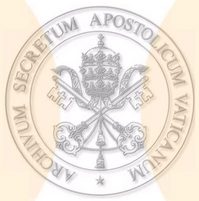 The release of these documents are the result of a request of the Pave the Way Foundation (PTWF) made to the Holy See to digitalize and publish 5,125 documents of the Vatican Secret Archives dated from March 1939 to May 1945. PTWF president Gary Krupp said his Foundation aims to remove the barriers between Catholic and Judaism. He told Jesús Colina of Zenit, "In the futherance of our mission we have recognized the papacy of the war time Pope Pius XII as a source of friction impacting over one billion people."
The release of these documents are the result of a request of the Pave the Way Foundation (PTWF) made to the Holy See to digitalize and publish 5,125 documents of the Vatican Secret Archives dated from March 1939 to May 1945. PTWF president Gary Krupp said his Foundation aims to remove the barriers between Catholic and Judaism. He told Jesús Colina of Zenit, "In the futherance of our mission we have recognized the papacy of the war time Pope Pius XII as a source of friction impacting over one billion people."
More information on the Vatican Secret Archives may be found here.
 A few weeks ago Yahoo sports posted a story that caught my attention (but I am only now getting around to posting it, sorry) about a former world-class speedskater now on a journey to the vowed life as a Franciscan Sister of the Renewal.
A few weeks ago Yahoo sports posted a story that caught my attention (but I am only now getting around to posting it, sorry) about a former world-class speedskater now on a journey to the vowed life as a Franciscan Sister of the Renewal.
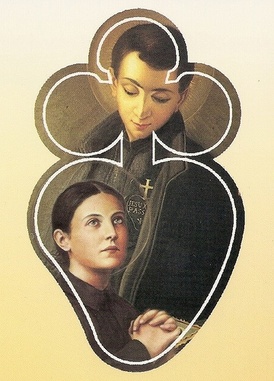
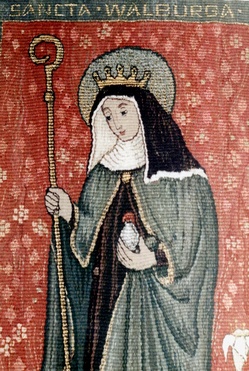
In the Syriac Christian tradition the healing power of Christ is presented to the faithful, by the Church, by knowing that the believing community of faith, is the Lord's bride and our mother. We know this experientially through the sacramental ministries of the priesthood. Saint Ephrem prays to Christ crucified and risen:
With three medicines
You have cured our sickness;
Humanity was weak, suffering and failing;
You have strengthened it by you blessed bread,
You have consoled it with your sober wine,
And You have given it joy with your anointing.
Lent is the springtime of our healing in mind, body and soul. Lent is a time to have the
great reversal happen: from weakness to strength, from sickness to health, from sinfulness to a
life of grace. This is all possible in the confession of sins, the worthy
reception of the Holy Eucharist, and the luscious anointing of the Holy Spirit
pour out over us.
Let's face it: many Christians find Lent meaningless. There are some among us who get their ashes, make some crazy resolution --give up the daily consumption of 5 beers, are nice to a sibling, do homework-- to make "penance" and the season of Lent more "holy." Silly things at Lent beget shallow experiences of conversion, perhaps even lend to a falsification of the Christian witness at during the time of Lent. Read the Pope's lenten addresses an see what he has to say about the nature of this season we call purposeful, holy, penitential, even great. He would agree with me (wow that could be dangerous!) that unless you take Christ seriously who is standing in front of you in the person of your neighbor, Lent is going to be boring and miserable. How pure is your love for Jesus? How does your love for Jesus made real, concrete, fruitful? The following 3 paragraphs may begin to help answer these questions. Emphasis mine.
Christ attracts me primarily through things and people. My wounded, tired soul could stop at that. Idolatry is nothing other than to confuse the creature with the Creator, which is why there is a continual need for the purification of love.
My comments here come directly from a saying of Fr. Giussani that I have referred to many, many times and that, in the book I wrote about him, I cited as one of the loftiest, most impressive and truly innovative points in the Church's recent history: the definition of virginity as distance in possession, or possession that includes distance in it. We must take this expression in its entirety. In it is the exaltation of the human in Christ, which so characterized Fr. Giussani's entire life, and the inevitability of sacrifice, which he always cited as the condition of the road. No one wants to do away with or repress friendship and sentiments, or to put them "in parentheses", but we must be very clear and ask ourselves: what does God want of me? And what does that mean for the other, in light of the road that God has assigned to him?
Christ is not
paradoxical. Christ gives us an abundance of human affections to help us to
understand what it means to love him. It doesn't scandalize me when someone
says: "It seems that I love that person more than I love Jesus", because our
path towards the Infinite is without end, and, before you love the God that you
don't see, you love the neighbor that you see. But love the neighbor that you
see so as to walk toward God, to walk toward the fullness of yourself.
An excerpt from an address tilted, "Our Fulfillment" by Father Massimo Camisasca, founder of the Fraternity of Saint Charles.
The Fraternity is an international missionary congregation of priests begun in 1985 as a response to the work of Monsignor Luigi Giussani. The Fraternity has about 100 priests in 20 countries and 30 in formation to be ordained priests. To read the rest of the address, click here.
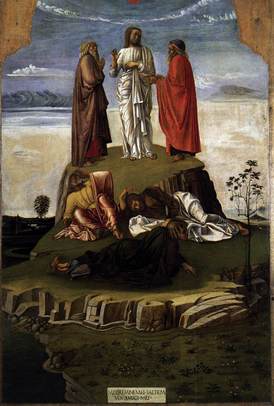 In the reformed Catholic Liturgy we hear little of the traditional days throughout the year given by the Church to pray in a more intense way and to fast in the light of the sacred Liturgy. Namely, Ember Days. Not only is it Lent but this week, Wednesday (today), Friday and Saturday, we have something extra added (at least we did, let me explain below): we offer to God the work and fruit of the season of spring and we ask God for blessings. In the old way of doing things deacons were ordained priests on Saturday. An intense sensibility of prayer and fasting make these days notable.
In the reformed Catholic Liturgy we hear little of the traditional days throughout the year given by the Church to pray in a more intense way and to fast in the light of the sacred Liturgy. Namely, Ember Days. Not only is it Lent but this week, Wednesday (today), Friday and Saturday, we have something extra added (at least we did, let me explain below): we offer to God the work and fruit of the season of spring and we ask God for blessings. In the old way of doing things deacons were ordained priests on Saturday. An intense sensibility of prayer and fasting make these days notable.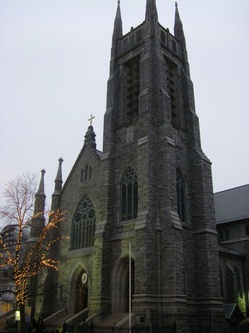 The Catholic faithful with their bishop, the Most Reverend William E. Lori, their pastor, Msgr. Stephen M. DiGiovanni and parochial vicars, gathered at the newly established Basilica of Saint John the Evangelist (Stamford, CT) tonight for Solemn Vespers and Benediction on the occasion of the Church receiving the dignity of a minor basilica by the Supreme Pontiff, Pope Benedict, XVI. It is one of 66 basilicas in the United States at this time. Also in attendance were Bishop Paul, Eparch of the Ukrainian Eparchy of Stamford and Bishop Basil the eparch emeritus with about 40 priests and seminarians.
The Catholic faithful with their bishop, the Most Reverend William E. Lori, their pastor, Msgr. Stephen M. DiGiovanni and parochial vicars, gathered at the newly established Basilica of Saint John the Evangelist (Stamford, CT) tonight for Solemn Vespers and Benediction on the occasion of the Church receiving the dignity of a minor basilica by the Supreme Pontiff, Pope Benedict, XVI. It is one of 66 basilicas in the United States at this time. Also in attendance were Bishop Paul, Eparch of the Ukrainian Eparchy of Stamford and Bishop Basil the eparch emeritus with about 40 priests and seminarians.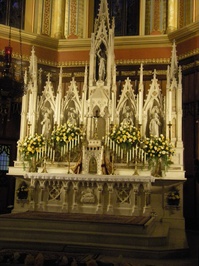
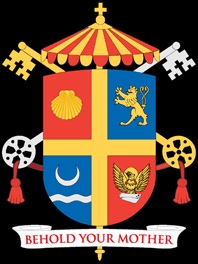
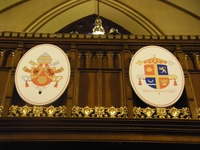
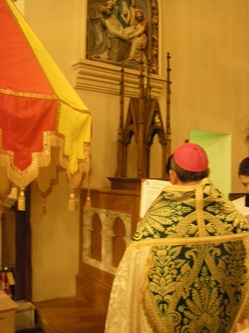
I've provided here excerpts of Bartholomew I's Patriarchal and Synodal Encyclical, published on the Sunday of Orthodoxy (
Catholics have their own irrational critics of the ecumenical movement, but I think there is sometimes good reason for the ecumenical leaders to pay attention to thoughtful criticism. I think we have been saddled with misguided "ecumenists" who capitulate to others some substantial matters like the nature of truth, morals, the sacred Liturgy, dogma, ecclesiology, teaching authority, etc.
But with this patriarchal letter, Bartholomew sets the stage for thinking intelligently and faithfully in an effort to work toward unity among Christians, without which the Christian witness to Christ as Lord and Savior and the sacramentality of the Church is weakened. There are matters raised by the critics that need to be dealt with directly, like: To what end do the dialogues aim? Is full, visible unity possible, or are we wasting our time? Can a selective reading of history be set aside and real scholarship emerge to shed light on historical events and gestures and theological reflection? How do we discern the work of the Holy Spirit in the dialogues? Are truth claims made by the Churches (
Funny, this letter will be read by the Catholic world on the ancient feast of the Chair of Peter on who whose witness we rely on for Christian unity. Would that the irony might be an opportunity for more concrete expressions unity of life in Christ. What Bartholomew says of the Orthodox Church is applicable to the Roman Church. Emphasis is mine.
May Saint Peter and Saint Andrew with Mary, Mother of God, pray for us.
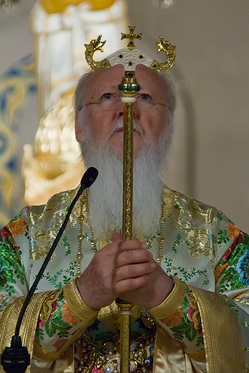 With a sense of duty and responsibility, despite its hurdles and problems, as the First-Throne Church of Orthodoxy, the Ecumenical Patriarchate cares about protecting and establishing the unity of the Orthodox Church, in order that with one voice and in one heart we may confess the Orthodox faith of our Fathers in every age and even in our times. For, Orthodoxy is not a museum treasure that must be preserved; it is a breath of life that must be transmitted and invigorate all people. Orthodoxy is always contemporary, so long as we promote it with humility and interpret it in light of the existential quests and needs of humanity in each historical period and cultural circumstance.
With a sense of duty and responsibility, despite its hurdles and problems, as the First-Throne Church of Orthodoxy, the Ecumenical Patriarchate cares about protecting and establishing the unity of the Orthodox Church, in order that with one voice and in one heart we may confess the Orthodox faith of our Fathers in every age and even in our times. For, Orthodoxy is not a museum treasure that must be preserved; it is a breath of life that must be transmitted and invigorate all people. Orthodoxy is always contemporary, so long as we promote it with humility and interpret it in light of the existential quests and needs of humanity in each historical period and cultural circumstance.
To this purpose, Orthodoxy must be in constant dialogue with the world. The Orthodox Church does not fear dialogue because truth is not afraid of dialogue. On the contrary, if Orthodoxy is enclosed within itself and not in dialogue with those outside, it will both fail in its mission and no longer be the "catholic" and "ecumenical" Church. Instead, it will become an introverted and self-contained group, a "ghetto" on the margins of history. This is why the great Fathers of the Church never feared dialogue with the spiritual culture of their age - indeed even with the pagan idolaters and philosophers of their world - thereby influencing and transforming the civilization of their time and offering us a truly ecumenical Church.
Today, Orthodoxy is called to continue this dialogue with the outside world in order to provide a witness and the life-giving breath of its faith. However, this dialogue cannot reach the outside world unless it first passes through all those that bear the Christian name. Thus, we must first converse as Christians among ourselves in order to resolve our differences, in order that our witness to the outside world may be credible. Our endeavors for the union of all Christians is the will and command of our Lord, who before His Passion prayed to His Father "that all [namely, His disciples] may be one, so that the world may believe that You sent me." (John 17.21) It is not possible for the Lord to agonize over the unity of His disciples and for us to remain indifferent about the unity of all Christians. This would constitute criminal betrayal and transgression of His divine commandment.
It is precisely for these reasons that, with the mutual agreement and participation of all local Orthodox Churches, the Ecumenical Patriarchate has for many decades conducted official Panorthodox theological dialogues with the larger
These dialogues, together with every effort for peaceful and fraternal relations of the Orthodox Church with other Christians, are unfortunately challenged today in an unacceptably fanatical way - at least by the standards of a genuinely Orthodox ethos - by certain circles that exclusively claim for themselves the title of zealot and defender of Orthodoxy. As if all the Patriarchs and Sacred Synods of the Orthodox Churches throughout the world, who unanimously decided on and continue to support these dialogues, were not Orthodox. Yet, these opponents of every effort for the restoration of unity among Christians raise themselves above Episcopal Synods of the Church to the dangerous point of creating schisms within the Church.
In their polemical argumentation, these critics of the restoration of unity among Christians do not even hesitate to distort reality in order to deceive and arouse the faithful. Thus, they are silent about the fact that theological dialogues are conducted by unanimous decision of all Orthodox Churches, instead attacking the Ecumenical Patriarchate alone. They disseminate false rumors that union between the Roman Catholic and
Beloved children in the Lord, Orthodoxy has no need of either fanaticism or bigotry to protect itself. Whoever believes that Orthodoxy has the truth does not fear dialogue, because truth has never been endangered by dialogue. By contrast, when in our day all people strive to resolve their differences through dialogue, Orthodoxy cannot proceed with intolerance and extremism. You should have utmost confidence in your
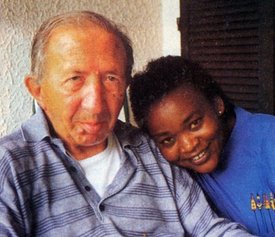 Five years ago today Monsignor Luigi Giussani died after suffering the effects of Parkinson's Disease. I continue to miss his voice and witness to faith we profess in Christ.
Five years ago today Monsignor Luigi Giussani died after suffering the effects of Parkinson's Disease. I continue to miss his voice and witness to faith we profess in Christ.Whatever you will bind on earth will be bound in heaven, and whatever you loose on earth will be loosed in heaven, the Lord said to Simon Peter.
O God, Who having given Peter, Thy Apostle, the keys of the kingdom of heaven, did bestow on him the pontifical power of binding and loosing; grant that by the help of intercession we may be delivered from the bonds of our sins.
On this feast in 2009, Pope Benedict taught the following in an audience:
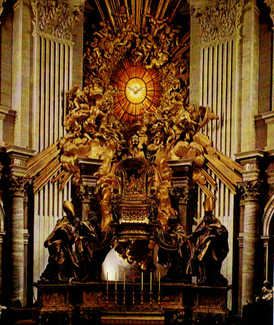
"This Sunday is also the feast of the Chair of Peter, an important liturgical feast that highlights the office of the successor of the Prince of the Apostles. The chair of Peter symbolizes the authority of the Bishop of Rome, who is called to perform a special service for the whole People of God. Immediately after the martyrdom of Saint Peter and Saint Paul, the primacy of the Church of Rome in the Catholic community was recognized. This role was already attested to in the 2nd century by Saint Ignatius of Antioch (Letter to the Romans, Pref.: Funk, I, 252) and by Saint Irenaeus of Lyons (Contra Haereses, III, 3, 2-3). This singular and specific ministry of the Bishop of Rome was stressed again by the Second Vatican Council. "Moreover, within the Church," we read in the Dogmatic Constitution on the Church, "particular Churches hold a rightful place; these Churches retain their own traditions, without in any way opposing the primacy of the Chair of Peter, which presides over the whole assembly of charity (cf. Saint Ignatius of Antioch, Letter to the Romans, Pref.) and protects legitimate differences, while at the same time assuring that such differences do not hinder unity but rather contribute toward it" (Lumen Gentium, 13).
Pope Benedict XVI,
Feast of the Chair of Saint Peter, 22 February 2009
The Church celebrates today, since the 4th century, the Feast of the Chair of Saint Peter, Apostle. The Church does not worship church furnishings but the office that was given to the Apostle Peter by the Lord Himself. This chair, then, is the key to unity among Christians. Hence, it is not just a chair, but a throne or cathedra, i.e., a seat of pastoral authority. It is not an authority for temporal affairs or political engagement. It is about preaching, teaching and sanctifying God's people. These three functions are to lead others to heaven --communio with the Blessed Trinity.
For what purpose does the Church have a feast called the "Chair of Saint Peter" and how is it connected with unity among Christians? Saint Cyprian, Carthage's bishop (d. 258), tells us,
"The Lord says to Peter: 'I say to you,' He says, 'that you are Peter, and upon this rock I will build my Church, and the gates of hell will not overcome it. And to you I will give the keys of the kingdom of heaven: and whatever things you bind on earth shall be bound also in heaven, and whatever you loose on earth, they shall be loosed also in heaven.' And again He says to him after His resurrection: 'Feed my sheep.' On him He builds the Church, and to him He gives the command to feed the sheep; and although He assigns a like power to all the Apostles, yet He founded a single chair, and He established by His own authority a source and an intrinsic reason for that unity. Indeed, the others were that also which Peter was; but a primacy is given to Peter whereby it is made clear that there is but one Church and one chair. So too, all are shepherds, and the flock is shown to be one, fed by all the Apostles in single-minded accord. If someone does not hold fast to this unity of Peter, can he imagine that he still holds the faith? If he desert the chair of Peter upon whom the Church was built, can he still be confident that he is in the Church?"
"There is one God and one Christ, and one Church, and one Chair founded on Peter by the word of the Lord. It is not possible to set up another altar or for there to be another priesthood besides that one altar and that one priesthood. Whoever has gathered elsewhere is scattering."
Saint Cyprian is very clear that Christ founded upon Saint Peter the visible basis of the unity of the Church. Peter does not replace Christ as the head of the Church. In theological terms this feast notes, observes and otherwise holds up a primacy given by the Lord to Saint Peter to ensure and preserve her unity. Saint Cyprian argues:
"With a false bishop appointed for themselves by heretics, they dare even to set sail and carry letters from schismatics and blasphemers to the chair of Peter and to the principal Church, in which sacerdotal unity has its source; nor did they take thought that these are Romans, whose faith was praised by the preaching Apostle, and among whom it is not possible for perfidy to have entrance."
For Saint Cyprian, the unity of the bishops and priests has its source (not only as a past event but as a living, thriving principle) in the Chair of Saint Peter.
Last year's blog post may also have some relevant info...
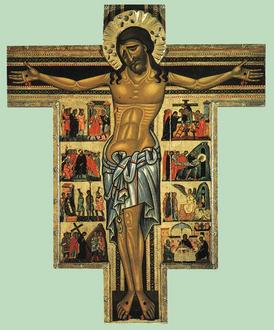
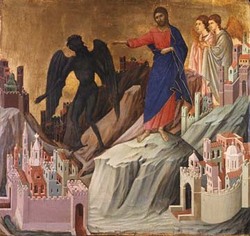
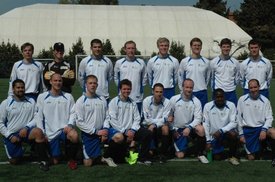
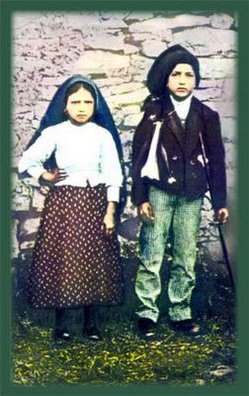 Unless you change and become like little children you will never enter the Kingdom of Heaven.
Unless you change and become like little children you will never enter the Kingdom of Heaven.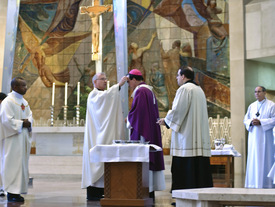
This is old news by now, but the Agenzia Fides reported back in late January that the cause for canonization for Father Matteo Ricci is again active. Ricci always held a special place in my imagination partly because he was (and continues to be) maligned by ideologues. I noted Ricci's 400th anniversary on this blog back in May.
The sainthood cause for 16th-century Jesuit missionary Matteo Ricci was reopened on January 24, following Mass at the Cathedral of San Giuliano in the diocese of Diocese of Macerata-Tolentino-Recanati-Cingoli-Treia, where he was born.
The process of beatification originally launched in 1984 when he was named a Servant of God. Bishop Claudio Giuliodori of Macerata said that although the cause stalled soon after it was opened, "these 25 years have not passed in vain because the Lord has given us clear signs of a deeper understanding of the prophetic intuitions of Father Matteo Ricci."
Father Matteo Ricci was born in 1552 in the Marche town of Macerata. He entered the Society of Jesus and was missioned by his superiors to study mathematics and astronomy before leaving for the Far East at the age of 26.
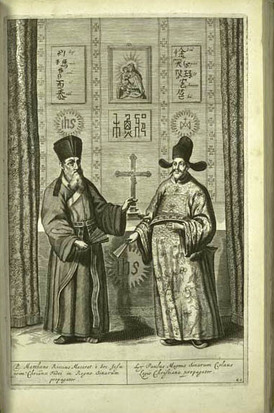
Ricci's itinerary included four years in Goa (west coast of India) before traveling to China. On mainland China he settled in Zhao Qing in the southernmost Guangdong Province; he was proficient in studying Chinese. During his time there he produced his global "Great Map of Ten Thousand Countries," which revolutionized the Chinese understanding of the rest of the world. A copy of the map is on display at the United States Library of Congress.
In 1589 Father Ricci moved to Zhao Zhou and began sharing European mathematical discoveries with Chinese scholars. He became known as "Li Madou" and was renowned for his extraordinary memory and knowledge of astronomy. He eventually became a member of the court of Ming Emperor Wanli.
In 1601 he was allowed into the Forbidden City of Beijing, where he worked until his death in 1610.
Ricci's postulator (the person promoting the inquiry for the sainthood) is Jesuit Father Anthony Witwer, who is coordinating and supervising a historical commission that has been established to collect all the writings and documents attributed to Father Ricci, along with those that reference him in publication. The commission's work will conclude with a critical study on the writings of Matteo Ricci along with a judgment as to the authenticity and value of documents on him.
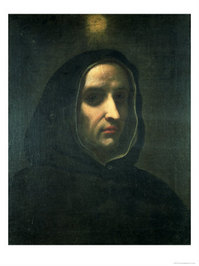
O Lord, teach me your way that I may walk in your truth; direct my heart that I may fear your name. I will give thanks to you with all my heart, O Lord my God, and I will glorify your name forever.
God of eternal beauty, you inspired Fra Angelico as
an artist at the service of your truth. May we delight in the beauty of his
work and rejoice in the glory of your creation.
Blessed John of Fiesole, known in history as a Blessed Angelico has captured the Catholic and human imagination generations of people through his magnificent painting of the Mystery of Faith and the life of man and woman. He was born in Tuscany c 1386/7 and died in Rome in 1455 at the Priory of Santa Maria sopra Minerva. He was an artist, superior in the Dominicans, promoter of the regular observance of the Dominican way of life and commission by Pope Eugene IV and Pope Nicholas V to decorate rooms in the Vatican and the Basilica of Saint Peter. He is said to have refused the archbishopric offered to him by Pope Eugene deferring to Saint Antoninus. We pray for artists and those who want to live the Dominican way of life with integrity.
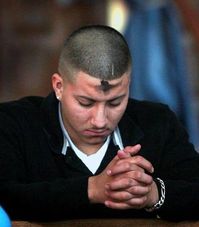
The last sentence of Pope Benedict's Wednesday audience today gives us a clue as to the reason why we begin a religious season of conversion, a yearly season of purification, he says: "40 days of intense prayer and sincere penance, to be able to celebrate, purified and completely renewed in mind and spirit, the great mystery of her Son's Easter." This is the point of ashes, penance, prayer, fasting, alms-giving--Easter!
The seminarians of Saint Joseph's Seminary --Dunwoodie, Yonkers, NY, returned to the seminary a couple of hours ago from being out all day imposing ashes on people at NYC churches: Saint Patrick's Cathedral, Saint Agnes, Our Lady of Victory and Our Lady of the Rosary. Seeming millions of people filtered through these churches. Certainly, Saint Patrick's saw 40-50 thousand people today and Saint Agnes (where I was with 5 other seminarians) saw about 7 thousand people come for ashes. It's tiresome to stand all day imposing ashes on gizilions of people repeating person-after-person the formula, "Remember that you are dust and dust you shall return." BUT it was good work for the Lord and for our sisters and brothers. On a personal note, I prayed my rosary and made my morning offering today for all the people upon whom I placed some ash as a token of the journey of conversion they've begun today by moving to the Last Supper, calvary and then unto empty tomb unto their salvation. The Pope's address today is another wonderful piece of practical theology moving us to the center of faith in Jesus Christ.
Today, Ash Wednesday, we begin the Lenten journey: a journey that extends over 40 days and that leads us to the joy of the Lord's Easter. We are not alone in this spiritual itinerary, because the Church accompanies and sustains us from the start with the Word of God, which encloses a program of spiritual life and penitential commitment, and with the grace of the sacraments.
The words of the Apostle Paul offer us a precise instruction: "Working together, then, we appeal to you not to receive the grace of God in vain. For he says: 'In an acceptable time I heard you, and on the day of salvation I helped you.' Behold, now is a very acceptable time; behold, now is the day of salvation" (2 Corinthians 6:1-2). In fact, in the Christian vision of life every moment must be called favorable and every day must be called the day of salvation. But the liturgy of the Church refers these words in a very particular way to the time of Lent. And that the 40 days of preparation for Easter be a favorable time and grace we can understand precisely in the call that the austere rite of the imposition of ashes addresses to us and which is expressed, in the liturgy, with two formulae: "Repent and believe in the Gospel," and "Remember man that thou art dust and unto dust thou shalt return."
The first call is to conversion, a word that must be taken in its extraordinary seriousness, discovering the amazing novelty it contains. The call to conversion, in fact, uncovers and denounces the easy superficiality that very often characterizes our way of living. To be converted means to change direction along the way of life -- not for a slight adjustment, but a true and total change of direction. Conversion is to go against the current, where the "current" is a superficial lifestyle, inconsistent and illusory, which often draws us, controls us and makes us slaves of evil, or in any case prisoners of moral mediocrity. With conversion, instead, one aims to the lofty measure of Christian life; we are entrusted to the living and personal Gospel, which is Christ Jesus. His person is the final goal and the profound meaning of conversion; he is the way which we are called to follow in life, allowing ourselves to be illumined by his light and sustained by his strength that moves our steps. In this way conversion manifests its most splendid and fascinating face: It is not a simple moral decision to rectify our conduct of life, but it is a decision of faith, which involves us wholly in profound communion with the living and concrete person of Jesus.
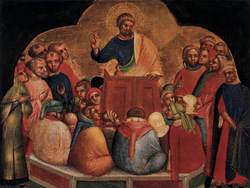
To be converted and to believe in the Gospel are not two different things or in some way closely related, but rather, they express the same reality. Conversion is the total "yes" of the one who gives his own existence to the Gospel, responding freely to Christ, who first offered himself to man as Way, Truth and Life, as the one who frees and saves him. This is precisely the meaning of the first words with which, according to the Evangelist Mark, Jesus began the preaching of the "Gospel of God." "This is the time of fulfillment. The kingdom of God is at hand. Repent, and believe in the Gospel" (Mark 1:15).
"Repent and believe in the Gospel" is not only at the beginning of the Christian life, but accompanies all its steps, [this call] remains, renewing itself, and spreads, branching out in all its expressions. Every day is a favorable moment of grace, because each day invites us to give ourselves to Jesus, to have confidence in him, to remain in him, to share his style of life, to learn from him true love, to follow him in daily fulfilling of the will of the Father, the only great law of life -- every day, even when difficulties and toil, exhaustion and falls are not lacking, even when we are tempted to abandon the following of Christ and to shut ourselves in ourselves, in our egoism, without realizing the need we have to open to the love of God in Christ, to live the same logic of justice and love.
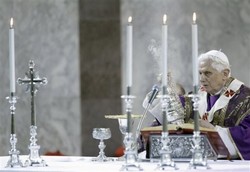
In the recent Message for Lent, I wished to remind that "humility is required to accept that I need Another to free me from 'what is mine,' to give me gratuitously 'what is his.' This happens especially in the sacraments of reconciliation and the Eucharist. Thanks to Christ's action, we may enter into the 'greatest' justice, which is that of love (cf. Rm 13, 8-10), the justice that recognizes itself in every case more a debtor than a creditor, because it has received more than could ever have been expected" (L'Osservatore Romano, Feb. 5, 2010, p. 8).
The favorable moment and grace of Lent shows us the very spiritual meaning also through the old formula: "Remember man that thou art dust and unto dust thou shalt return," which the priest pronounces when he places ashes on our head. We are thus remitted to the beginning of human history, when the Lord said to Adam after the original fault: "By the sweat of your face shall you get bread to eat, Until you return to the ground, from which you were taken; For you are dirt, and to dirt you shall return" (Genesis 3:19).
Here, the Word of God reminds us of our frailty, including our death, which is the extreme expression of our frailty. In face of the innate fear of the end, and even more so in the context of a culture that in so many ways tends to censure the reality and the human experience of dying, the Lenten liturgy on one hand reminds us of death, inviting us to realism and to wisdom but, on the other hand, it drives us above all to accept and live the unexpected novelty that the Christian faith liberates us from the reality of death itself.
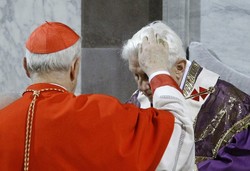
Man is dust and to dust he shall return, but he is precious dust in God's eyes, because God created man for immortality. Thus the liturgical formula "Remember man that thou art dust and to dust thou shalt return" finds the fullness of its meaning in reference to the new Adam, Christ. The Lord Jesus also wished to freely share with every man the lot of frailty, in particular through his death on the cross; but precisely this death, full of his love for the Father and for humanity, has been the way for the glorious resurrection, through which Christ has become the source of a grace given to those who believe in him and are made participants of divine life itself. This life which will have no end is already present in the earthly phase of our existence, but will be led to fulfillment after the "resurrection of the flesh." The little gesture of the imposition of ashes reveals to us the singular richness of its meaning: It is an invitation to live the time of Lent as a more conscious and more intense immersion in the Paschal Mystery of Christ, in his death and resurrection, through participation in the Eucharist and in the life of charity, which stems from the Eucharist and in which it finds its fulfillment. With the imposition of ashes we renew our commitment to follow Jesus, to allow ourselves to be transformed by his Paschal Mystery, to overcome evil and do good, to have the "old man" in us die, the one linked to sin, and to have the "new man" be born, transformed by the grace of God.
Dear friends! While we hasten to undertake the austere Lenten journey, we want to invoke with particular confidence the protection and help of the Virgin Mary. May she, the first believer in Christ, be the one who accompanies us in these 40 days of intense prayer and sincere penance, to be able to celebrate, purified and completely renewed in mind and spirit, the great mystery of her Son's Easter.
Good
Lent to all!
Grant, O Lord, that Thy faithful may begin the solemn days of Lent with fitting piety and may persevere therein with steadfast devotion.
It is time to "begin the time of fasting with joy, submitting ourselves to spiritual struggle" in preparing to live fully the Paschal Mystery of the Lord (His saving life, death, resurrection and Ascension). "By the solemn forty days of Lent the Church unites herself each year to the mystery of Jesus in the desert." (Catechism of the Catholic Church 540).
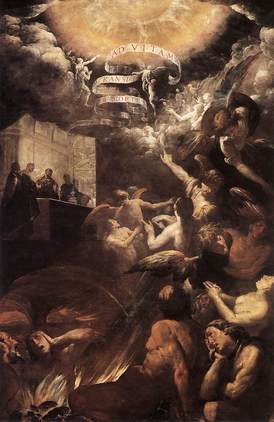 What is asked of those who make the claim to follow Christ? It seems to me that the path to understanding and living these 40 days of Lent in order to live the rest of the year as a true, honest, loving Christian. Lent, oddly enough, is a joyful time when we have a focused embrace of the spiritual struggle played out in acts of contrition, purification and prayerfulness. Often we hear Lent reduced to prayer, fasting and almsgiving. True enough, those are the hallmarks of Lent. But to broaden our sense of Lent let's think that there is time for fasting, abstinence from certain foods, ways of thinking, acting, speaking, simple living (frugality), restriction of personal desires, intense prayer, confession of sins, and similar ascetic elements are essential to the period of Lent. Lent is a time for good work on the soul and the heart (and the body if need be). No doubt if we take Lent seriously and actually do some these spiritual works, they may be burdensome obligations or unbearable duties. We may even feel a bit despondent or dejected. The spiritual fathers and mothers all tell us that to truly follow Christ with any degree of honesty we have to work on changing our lives by conforming the self to Christ, even if it hurts. How do know how conform the self to Christ? Do lectio divina (see entry 1 and entry 2), pray the rosary, go to confession, do charitable work, spend time in silence alone in personal prayer, adore Christ in the Blessed Sacrament, and go to
What is asked of those who make the claim to follow Christ? It seems to me that the path to understanding and living these 40 days of Lent in order to live the rest of the year as a true, honest, loving Christian. Lent, oddly enough, is a joyful time when we have a focused embrace of the spiritual struggle played out in acts of contrition, purification and prayerfulness. Often we hear Lent reduced to prayer, fasting and almsgiving. True enough, those are the hallmarks of Lent. But to broaden our sense of Lent let's think that there is time for fasting, abstinence from certain foods, ways of thinking, acting, speaking, simple living (frugality), restriction of personal desires, intense prayer, confession of sins, and similar ascetic elements are essential to the period of Lent. Lent is a time for good work on the soul and the heart (and the body if need be). No doubt if we take Lent seriously and actually do some these spiritual works, they may be burdensome obligations or unbearable duties. We may even feel a bit despondent or dejected. The spiritual fathers and mothers all tell us that to truly follow Christ with any degree of honesty we have to work on changing our lives by conforming the self to Christ, even if it hurts. How do know how conform the self to Christ? Do lectio divina (see entry 1 and entry 2), pray the rosary, go to confession, do charitable work, spend time in silence alone in personal prayer, adore Christ in the Blessed Sacrament, and go to
The liturgical season of Lent is 40 days -not a long period of spiritual training--and it ought to be regarded as an invaluable and divine gift from a God who loves us and wants us to be in relationship with Him. It is a sacred time of divine grace, which seeks to detach us from things material, lowly and corrupt in order to attract us toward things superior, wholesome and spiritual (see Catechism 1434-9). As one Christian leader said, "Lent is a unique opportunity to remove from the soul every passion, to rid the body of everything superfluous, harmful and mortal. Accordingly, then, it is a time of immense rejoicing and gladness. Lent is a genuine feast and time for exhilaration!"
Fasting expected of us by the Church, as well as the abstinence, frugality, restriction of personal desires and unnecessary pleasures or expenses, literally constitute a prescription for salvation. This is especially true this year, when our world has experienced a global economic crisis, filled with imminent danger of bankruptcy not only for individuals and companies, skyrocketing unemployment, the creation of entire hosts of people plagued by poverty, nihilism, depression, crime, and other societal ills. Lent is an education that labors to instruct us in a particular daily journey with not a great sense of "success," without the arrogance and entitlement of extravagance, waste and bravado. It encourages us to surrender all forms of greed and ignore the challenges of commercial advertising, which constantly promotes new and false necessities (see Catechism 1430-3).
The Lenten season provokes us to limit ourselves to what is absolutely essential and necessary in an attitude of dignified, deliberate simplicity. Christian leaders advise us not to be a consuming or compulsive herd of thoughtless and heartless individuals, but a culture of sensitive and caring persons, sharing with and supporting our "neighbor" that is in poverty or recession. Finally, Lent informs us about patience and tolerance in moments of smaller or larger deprivation, while simultaneously emphasizing the need to seek God's assistance and mercy, placing our complete trust in His affectionate providence.
That is how Christ envisions Lent. That is how the saints lived Lent. This is how the Church Fathers undertakes the struggle of Lent. This is how our faith has traditionally understood Great Lent. This is how the Church in
On February 14, 2010, the Holy Father spoke to the Pontifical Academy for Life. All but the introductory paragraph is noted here.
The issues that revolve around the theme of bioethics allow us to confirm how much these underlying questions in the first place pose the "anthropological question." As I state in my last encyclical letter, Caritas in Veritate: "A particularly crucial battleground in today's cultural struggle between the absolutism of technology and human moral responsibility is the field of bioethics, where the very possibility of integral human development is radically called into question. In this most delicate and critical area, the fundamental question asserts itself force-fully: is man the product of his own labors or does he depend on God? Scientific discoveries in this field and the possibilities of technological intervention seem so advanced as to force a choice between two types of reasoning: reason open to transcendence or reason closed within immanence" (no. 74).
Before such questions, which touch in such a decisive manner human life in its perennial tension between immanence and transcendence, and which have great relevance for the culture of future generations, it is necessary to create a holistic pedagogical project that permits us to confront these issues in a positive, balanced and constructive vision, above all in the relationship between faith and reason. The questions of bioethics often place the reminder of the dignity of the person in the foreground. This dignity is a fundamental principle that the faith in Jesus Christ crucified and risen has always defended, above all when it is ignored in regard to the humblest and most vulnerable persons: God loves every human being in a unique and profound way. Bioethics, like every discipline, needs a reminder able to guarantee a consistent understanding of ethical questions that, inevitably, emerge before possible interpretive conflicts. In such a space a normative recall to the natural moral law presents itself. The recognition of human dignity, in fact, as an inalienable right first finds its basis in that law not written by human hand but inscribed by God the Creator in the heart of man. Every juridical order is called to recognize this right as inviolable and every single person must respect and promote it (cf. Catechism of the Catholic Church, 1954-1960).
Without the foundational principle of human dignity it would be difficult to find a source for the rights of the person and the impossible to arrive at an ethical judgment if the face of the conquests of science that intervene directly in human life. It is thus necessary to repeat with firmness that an understanding of human dignity does not depend on scientific progress, the gradual formation of human life or facile pietism before exceptional situations. When respect for the dignity of the person is invoked it is fundamental that it be complete, total and with no strings attached, except for those of understanding oneself to be before a human life. Of course, there is development in human life and the horizon of the investigation of science and bioethics is open, but it must be reaffirmed that when it is a matter of areas relating to the human being, scientists can never think that what they have is only inanimate matter capable of manipulation in their hands. Indeed, from the very first moment, the life of man is characterized as "human life" and therefore always a bearer -- everywhere and despite everything -- of its own dignity (cf. Congregation for the Doctrine of the Faith, Instruction Dignitas Personae on Certain Bioethical Questions, 5). Without this understanding, we would always be in danger of an instrumental use of science with the inevitable consequence of easily ceding to the arbitrary, to discrimination and to the strongest economic interest.
Joining bioethics and natural moral law permits the best confirmation of the necessary and unavoidable reminder of the dignity that human life intrinsically possesses from its first instant to its natural end. But in the contemporary context, while a just reminder about the rights that guarantee dignity to the person is emerging with ever greater insistence, one notes that such rights are not always recognized in the natural development of human life and in the stages of its greatest fragility. A similar contradiction makes evident the task to be assumed in different spheres of society and culture to ensure that human life always be seen as the inalienable subject of rights and never as an object subjugated to the will of the strongest.
History has shown us how dangerous and deleterious a state can be that proceeds to legislate on questions that touch the person and society while pretending itself to be the source and principle of ethics. Without universal principles that permit a common denominator for the whole of humanity the danger of a relativistic drift at the legislative level is not at all something should be underestimated (cf. Catechism of the Catholic Church, 1959). The natural moral law, strong in its universal character, allows us to avert such a danger and above all offers to the legislator the guarantee for an authentic respect of both the person and the entire created order. It is the catalyzing source of consensus among persons of different cultures and religions and allows them to transcend their differences since it affirms the existence of an order impressed in nature by the Creator and recognized as an instance of true rational ethical judgment to pursue good and avoid evil. The natural moral law "belongs to the great heritage of human wisdom. Revelation, with its light, has contributed to further purifying and developing it" (John Paul II, Address to the Plenary Assembly of the Congregation of the Doctrine of the Faith, February 6, 2004).
Illustrious
members of the Pontifical Academy for Life, in the present context your task
appears more and more delicate and difficult, but the growing sensitivity in
regard to human life is an encouragement to continue, with ever greater spirit
and courage, in this important service to life and the education of future
generations in the evangelical values. I hope that all of you will continue to
study and research so that the work of promoting and defending life be ever
more effective and fruitful. I accompany you with the apostolic blessing, which
I gladly extend to those who share this daily task with you.
I went to confession the other day. I try to go once a month and for the most part I make that commitment. For some reason, it was a about 8 weeks since I darkened the confessional. I was leaving that afternoon for my hermitage day (spoken of in another blog post below) and Lent was fast approaching. Going to confession was awkward, lonely, fearful BUT intensely gratifying, freeing, and loving. Facing one's sinful nature is NEVER easy; it is NEVER anything but a hassle, it is NEVER anything but embarassing but it is the only way I know how to be honest with myself in front of God. As an Opus Dei priest tells me when I see him occasionally for confession: you've got sin, I've got the grace for you to live ... by the ministry of the Church. Of course, this priest is echoing the notion that I am not confessing my sinful self to him personally (I really don't think he cares one-way-or-another truely in the best sense) but ipse Christus --to Christ Himself. I read the passage noted below from a rather famous spiritual treatise today and the last line from sacred Scripture struck me: If anyone would come after me, let him deny himself. Do you have a clear understanding of mortal sin? Have you gone to confession? How is your struggle with sin going in the face of grace?
Only mortal sin is completely opposed to God; this opposition is so great that it separates the soul from God. However, every sin, even venial sin, and every fault and imperfection, is in opposition to God's infinite holiness. Therefore Jesus offers the perfection of his heavenly Father as a norm for our Christian life, and engages us in an intense struggle against sin in order to destroy in us its deepest roots and even its slightest traces.
This is what Jesus teaches in these few short words: deny yourself. We must deny self with all its imperfect habits and inclinations; and we must do so continually. Such a task is fatiguing and painful, but it is indispensable if we wish to attain sanctity. Jesus says: The gate is narrow and the way is hard that leads to life, and those who find it are few (Mt.
In echo of Jesus, all the masters of the spiritual life insist strongly on detachment and self-renunciation as the indispensable foundation of the spiritual life.
But first and foremost, it is Jesus, the divine Teacher, who has pointed out to us the absolute necessity of passing through this way: If anyone would come after me, let him deny himself (Mt.
Divine Intimacy
 Being busy about many things affords one many distractions, which can be a good thing. Very often, being too busy and distracted offers no consolation and actually makes life less interesting, less thirsty for God, less able to hear the promptings of the Lord, less focused on substantial matters of life. Perhaps one can say less able to take serious our own reality. But life is not about measuring up to a standard as it is about a relationship, time spent in the company of the other person (though the other person be yourself).
Being busy about many things affords one many distractions, which can be a good thing. Very often, being too busy and distracted offers no consolation and actually makes life less interesting, less thirsty for God, less able to hear the promptings of the Lord, less focused on substantial matters of life. Perhaps one can say less able to take serious our own reality. But life is not about measuring up to a standard as it is about a relationship, time spent in the company of the other person (though the other person be yourself).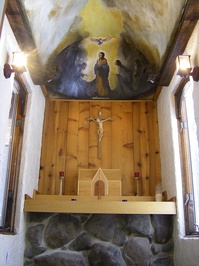

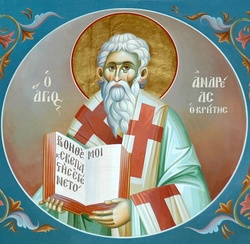
For Eastern Catholic and Orthodox Christians, today is "Clean Monday,"
the first day of the Great Fast. In many of these churches, the faithful will
gather tonight for the service of Compline with the singing of a portion of the
"Penitential Canon," also known as the "Great Canon of St.
Andrew of Crete." The First Ode of the Great Canon uses as a springboard
the text of the Canticle of Moses contained in Exodus 15: 1-19. The
singing of the Great Canon in the First Week of the Great Fast, is intended to
invoke compunction in the penitent heart.
(Irmos) A Helper and Protector has become salvation to me.
This is my God; I
will glorify Him.
God of my fathers,
I will exalt Him;
for in glory has He been glorified!
Refrain
Glory to You, our God, glory to You! (or the refrain changes to "Have mercy on me, O God, have mercy on me!" when sung at Compline in the first of the Fast)
Where shall I begin
to lament the deeds of my wretched life?
What first-fruits
shall I offer, O Christ, for my present lamentation?
But in your compassion, grant me release from my sins.
Glory to You...
Come, wretched
soul,
with your flesh
confess to the Creator of All.
In future, refrain
from your former brutishness
and offer to God tears in repentance.
Glory to You...
Having rivaled the
first-made Adam in my transgressions,
I realize that I am
stripped naked of God
and of the everlasting kingdom of bliss through my sins.
Glory to You...
Alas, wretched
soul!
Why are you like
the first Eve?
For you have
wickedly looked and been bitterly wounded,
and you have
touched the tree
and rashly tasted the forbidden fruit. (cf Gen. 3:6)
Glory to You...
The place of bodily
Eve has been taken
by the Eve of my
mind,
in the shape of a
passionate thought in the flesh,
showing me sweet
things
yet ever making me taste bitter things.
Glory to You...
Adam was rightly
exiled from Eden
for not keeping
Your one commandment.
O Savior, what
shall I suffer,
who am always rejecting
Your living words? (cf. Gen. 3:26/Acts 7:38)
Glory to the Father and to the Son and to the Holy Spirit!
Trinity adored in
Unity,
take from me the
heavy yoke of sin,
and in Your
compassion,
grant me tears of compunction.
Now and ever and forever. Amen.
O Theotokos,
hope and
intercessor of those who sing to you,
take from me the
heavy yoke of sin,
and as you are our
pure Lady,
accept me that
repents.
(KATAVASIA) A
Helper and a Protector is He unto salvation.
He is my God, and I
glorify Him;
God of my fathers,
and I magnify Him,
for He is greatly
glorified.
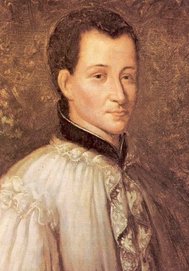
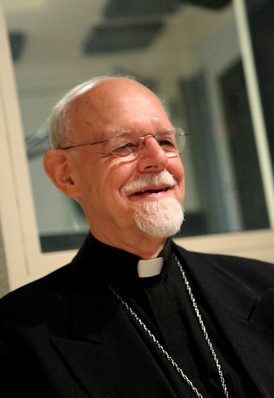 Bishop Peter Anthony Rosazza, an auxiliary bishop of the Archdiocese of Hartford, celebrates his 75th birthday today.
Bishop Peter Anthony Rosazza, an auxiliary bishop of the Archdiocese of Hartford, celebrates his 75th birthday today.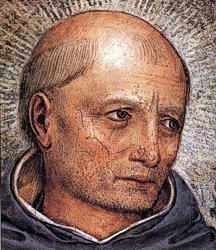 My words that I have in your mouth, says the Lord, will never be absent from your lips, and your gifts will be accepted on my altar.
My words that I have in your mouth, says the Lord, will never be absent from your lips, and your gifts will be accepted on my altar.I came across this entry in an old encyclopedia. In its brevity a lot of truth is revealed: we can work (asceticism) by reason, and the heart, to union with God. Consider for a second what the author, Fr Drum, has to teach. Also, remember that Ignatian spirituality is not the same as Jesuit spirituality. The two are not the same by any stretch of the imagination. Fr Drum tells us that it is possible through prayer and good spiritual direction to know, love and serve God in this world so as to do the same in the next. Many people today don't have the confidence that knowing and loving and serving God is possible at all. Some don't know that God wants our happiness today --in this life--that there is meaning to our life that includes suffering and love (& joy) and some reject the notion that we are oriented toward a final goal. Christians call this goal heaven, the Beatific vision, communion with the Trinity, etc. What else is there for the Christian who really prays and lives his or her life with the Gospel and with reason? I get the sense that they don't have the certainty that God knows us personally and intimately, never mind having a relationship with bodiless being.
I spent many years being formed by Ignatian Spirituality. My personal, cultural, ecclesial life (taken as a unity) is informed by what Saint Ignatius of Loyola proposed in his Spiritual Exercises. But I would not be telling the whole truth if I didn't say that other influences have had a strong influence in how I look at my life and life's work today. My life intersects with Msgr. Luigi Giussani, Saint Josemaria Escriva, Saints Francis & Dominic and Saint Benedict. The host of women saints and blesseds are too cumbersome to note here. The point, however, is not my interpretative lens except to say that I have benefited from the Spiritual Exercises and perhaps you might think the same if you gave the Exercises a chance. They are clearly an apostolic method in the spiritual life with an incredibly strong contemplative aspect. The Exercises are not for everyone, so be patient with them if you attempt to do an Ignatian retreat.
Ultimately, what the author of this entry names as the goal of the Christian life is my own, regardless of the influences: To live is Christ. It is entirely consistent with the motto of my coat of arms seen above: sequela Christi (to follow Christ). Ignatius (and the other spiritual masters noted above) could not conceive of life any differently. Would that be the same for all people!
The entry:
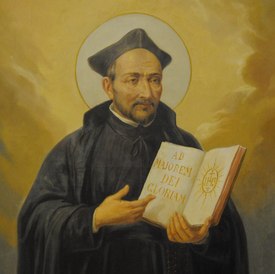
The spirit of Saint Ignatius was Pauline, -- intrepid yet tender; motivated by two great principles,--love of Jesus Christ and zeal for the salvation of souls. These two principles were brought together in his motto: A. M. D. G., "Omnia ad Majorem Dei Gloriam" (All for the greater glory of God). It was this spirit, which breathed in "The Spiritual Exercises," a method of asceticism, that is the very soul of the constitutions and activities of the Society of Jesus.
This little book is said to have converted more souls than it contains letters.
Certainly the results it has produced down the centuries cannot be exaggerated. The importance of its method is proved by the mere fact that 292 Jesuit writers have commented on the whole work. The purpose of the Exercises is definite and scientific upbuilding of the reason, will and emotions, by meditation and contemplation on the fundamental principles of the spiritual life and by other exercises of the soul. First, God is rated rightly as the soul's end and object.
Reason is convinced that God is the end for which the soul is created, and all things else are only means to bring the soul to God; hence it follows that that is good which leads the soul Godward, and that is evil which leads the soul awayward from God.
The soul's awaywardness from God results in sin; so sin is studied both in itself and in its consequences to the soul. Secondly, Jesus Christ is put in His place in the soul, by meditations on His ideals and contemplations on His private and public life.
The soul now aspires to the very height of enthusiastic and personal love to Him; and to the most self-sacrificing generosity in following the evangelical counsels.
Thirdly, the high resolves of the soul are confirmed by the imitation of Christ in His passion. Lastly, the soul rises to a sublime and unselfish joy, purely because of the glory of its risen Lord; and leaps with rapturous exultation into the realms of unselfish and perfect love of God, such as Saint Paul evinced when he cried out: "To me, to live is Christ; to die were gain" (Philippians 1, 21).
Fr Walter Drum, SJ
The Encyclopedia Americana, 1919
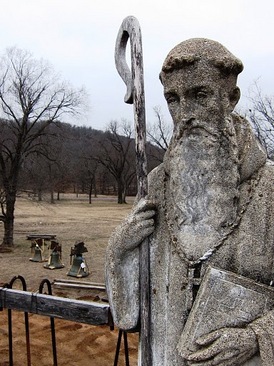 Yesterday was the feast of Saint Scholastica, the twin sister of Saint Benedict but today Father Abbot Antoine of the Abbey Our Lady of Fontgombault announced that Our Lady of the Annunciation of Clear Creek Monastery is now an abbey.
Yesterday was the feast of Saint Scholastica, the twin sister of Saint Benedict but today Father Abbot Antoine of the Abbey Our Lady of Fontgombault announced that Our Lady of the Annunciation of Clear Creek Monastery is now an abbey.I present the Wednesday (February 10, 2010) Address of Pope Benedict on Saint Anthony of Padua, following upon his talks on Saints Francis and Dominic in the past weeks. What is a stake here for the Pope? It is being centered totally on Christ. Nothing else matters. Prayer, a relationship of love with God is a constant. As the pope will note below, you can't make progress in the spiritual life if you do not pray and live a life of virtue. And now, the pope...
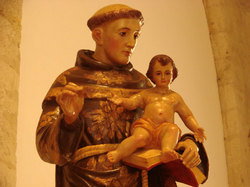
After presenting two weeks ago the figure of Francis of Assisi, this morning I would like to speak about another saint belonging to the first generation of Friars Minor: Anthony of Padua or, as he is also called, of Lisbon, referring to his native city. He is one of the most popular saints in the whole Catholic Church, venerated not only in Padua, where a splendid basilica was built, which houses his mortal remains, but in the whole world. Dear to the faithful are images and statues that represent him with the lily, symbol of purity, or with the Child Jesus in his arms, in memory of a miraculous apparition mentioned in some literary sources.
Anthony contributed in a significant way to the development of Franciscan spirituality, with his outstanding gifts of intelligence, balance, apostolic zeal and, mainly, mystical fervor.
He was born in Lisbon of a noble family around 1195 and was baptized with the name Fernando. He entered the canons who followed the monastic rule of St. Augustine, first in the monastery of St. Vincent in Lisbon, and subsequently in that of the Holy Cross in Coimbra, renown cultural center of Portugal. He dedicated himself with interest and solicitude to the study of the Bible and of the Fathers of the Church, acquiring that theological science that he made fructify in the activities of teaching and preaching.
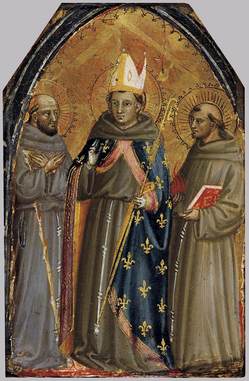
The episode that marked a decisive change in his life took place in Coimbra: In 1220 the relics were exposed there of the first five Franciscan missionaries who had gone to Morocco, where they met with martyrdom. Their case aroused in young Fernando the desire to imitate them and to advance in the way of Christian perfection: He then asked to leave the Augustinian canons and become a Friar Minor. His request was accepted and, taking the name Anthony, he also left for Morocco, but Divine Providence willed otherwise. As the consequence of an illness, he was obliged to return to Italy and, in 1221, he took part in the famous "Chapter of the mats" in Assisi, where he also met St. Francis. Subsequently, he lived for a time totally hidden in a convent near Forli, in the north of Italy, where the Lord called him to another mission. Invited, by totally accidental circumstances, to preach on the occasion of a priestly ordination, he showed he was gifted with such learning and eloquence that the superiors destined him to preaching. Thus he began in Italy and France such an intense and effective apostolic activity that he induced not a few persons who had separated from the Church to retrace their steps. He was also among the first teachers of theology of the Friars Minor, if not even the first. He began his teaching in Bologna, with Francis' blessing who, recognizing Anthony's virtues, sent him a brief letter with these words: "I would like you to teach theology to the friars." Anthony set the foundations of Franciscan theology that, cultivated by other famous figures of thinkers, came to its zenith with St. Bonaventure of Bagnoregio and Blessed Duns Scotus.
Becoming provincial superior of the Friars Minor of northern Italy, he continued with the ministry of preaching, alternating that with administrative tasks. When his mandate as provincial came to an end, he retired near Padua where he had already been other times. Barely a year later, he died at the gates of the city on June 13, 1231. Padua, which in life had received him with affection and veneration, showed him forever honor and devotion. Pope Gregory IX himself, after hearing him preach, described him as the "Arc of the Testament," and canonized him in 1232, also as a result of the miracles that happened through his intercession.
In the last period of his life, Anthony committed to writing two series of "Sermons" titled, respectively, "Sunday Sermons" and "Sermons on the Saints," written for preachers and professors of theological studies of the Franciscan Order. In them he comments on the texts of sacred Scripture presented by the liturgy, using the Patristic-Medieval interpretation of the four meanings: the literal or historical, the allegorical or Christological, the tropological or moral, and the anagogic, which guides to eternal life. They are theologic-homiletic texts, which take up the lively preaching in which Anthony proposes a true and proper itinerary of Christian life. The wealth of the spiritual teachings contained in the "Sermons" is such that, in 1946, the Venerable Pope Pius XII proclaimed Anthony a doctor of the Church, attributing to him the title of "Evangelic Doctor," because from these writings arises the freshness and beauty of the Gospel; even today we can read them with great spiritual profit.
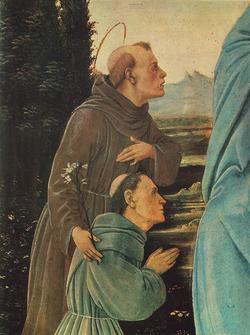
In them, he speaks of prayer as a relationship of love, which drives man to converse sweetly with the Lord, creating an ineffable joy, which gently envelops the soul in prayer. Anthony reminds us that prayer needs an atmosphere of silence, which is not the same as withdrawal from external noise, but is an interior experience, which seeks to remove the distractions caused by the soul's preoccupations. According to the teaching of this distinguished Franciscan doctor, prayer is made up of four indispensable attitudes which, in Anthony's Latin, are described as: obsecratio, oratio, postulatio, gratiarum actio. We could translate them thus: to open one's heart confidently to God, to speak affectionately with him, to present to him our needs, to praise him and to thank him.
In this teaching of St. Anthony on prayer we see one of the specific features of Franciscan theology -- of which he was the initiator -- namely, the role given to divine love, which enters in the sphere of affection, of the will, of the heart and which is also the source from which springs a spiritual knowledge that surpasses all knowledge.
Anthony writes: "Charity is the soul of faith, makes it alive; without love, faith dies" (Sunday and Holy Days Sermons II, Messagero, Padua, 1979, p. 37).
Only a soul that prays can make progress in the spiritual life: this is the privileged object of St. Anthony's preaching. He knows well the defects of human nature, the tendency to fall into sin; that is why he constantly exhorts to combat the inclination to covetousness, to pride, to impurity and to practice the virtues of poverty and generosity, of humility and obedience, of chastity and purity. At the beginning of the 13th century, in the context of the rebirth of the cities and the flourishing of trade, there was an increased number of people who were insensitive to the poor. Because of this, Anthony many times invites the faithful to think of true wealth, that of the heart, which, making them good and merciful, makes them accumulate treasures for Heaven. "O rich people," he exhorts, "befriend ... the poor, welcome them in your homes: They will then be the ones who receive you in the eternal tabernacles, where the beauty of peace is, the confidence of security, and the opulent quiet of eternal satiety" (Ibid., p. 29).
Is not this perhaps, dear friends, a very important teaching also today, when the financial crisis and the serious economic imbalances impoverish not a few persons and create conditions of misery? In my encyclical Caritas in Veritate, I remind that: "The economy needs ethics in order to function correctly -- not any ethics whatsoever, but an ethics which is people-centred" (No. 45).
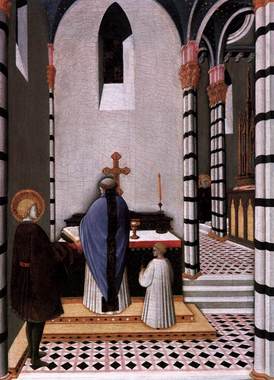
In Francis' school, Anthony always puts Christ in the center of life and thought, of action and preaching. This is another typical feature of Franciscan theology: Christ-centeredness. Willingly [this theology] contemplates and invites to contemplate the mysteries of the Lord's humanity, in a particular way, that of the Nativity, which arouse feelings of love and gratitude toward divine goodness.
Also the vision of the
Crucified inspires in him thoughts of gratitude to God and of esteem for the
dignity of the human person, so that all, believers and non-believers, can find
a meaning that enriches life. Anthony writes: "Christ, who is your life,
is hanging before you, because you look at the cross as in a mirror. There you
will be able to know how mortal were your wounds, which no medicine but that of
the blood of the Son of God could have cured. If you look well, you will
realize how great are your human dignity and your value ... In no other place
can man realize better how much he is worth, but by looking at himself in the
mirror of the cross" (Sunday and Holy Days Sermons III, p. 59).
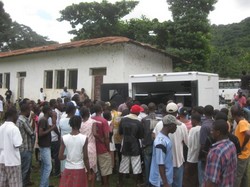
On the 18th World Day of the Sick observed each year on the feast of Our Lady of Lourdes the Pope Benedict sends to the world a message. The Pope draws my attention, and perhaps yours, to the fact that Jesus tells us to do what He has done: be an instrument of healing by allowing divine grace to actually work. To "go and do likewise" is the reason why priests reconcile sinners, strengthen the sick through the sacrament of the sick, to "go and do likewise" is why Sr Mary Ellen Genova visits the sick weekly bring the Gospel and the Eucharist to those who can't come to church, to "go and do likewise" is why Fr Jordan Kelly and the NY Dominican Friars have a healthcare ministry at 4 of the world's prestigious hospitals, to "go and do likewise" is doing what Jesus did when we had the anointing of the sick for breast cancer survivors on the feast of Saint Agatha on February 5th, and to "go and do likewise" is why Fr Thomas Berg and the Westchester Institute works on healthcare ethics. There is no end to what we do in order to follow Christ more closely, focusing not on ourselves but on God the Father asking for the grace to deal directly with illness and suffering in a graced-filled manner.
I extracted three paragraphs from the 2010 message for our consideration here today. The points emphasized are what I think the crucial elements of the papal message to be used for prayer and consideration.
At the end of the parable, Jesus said: "Go and do likewise" (Lk 10: 37). With these words he is also addressing us. Jesus exhorts us to bend over the physical and mental wounds of so many of our brothers and sisters whom we meet on the highways of the world. He helps us to understand that with God's grace, accepted and lived out in our daily life, the experience of sickness and suffering can become a school of hope. In truth, as I said in the Encyclical Spe salvi, "It is not by sidestepping or fleeing from suffering that we are healed, but rather by our capacity for accepting it, maturing through it and finding meaning through union with Christ, who suffered with infinite love" (n. 37).
The Second Ecumenical Vatican Council had already recalled the Church's important task of caring for human suffering. In the Dogmatic Constitution Lumen gentium we read that "Christ was sent by the Father "to bring good news to the poor... to heal the contrite of heart' (Lk 4: 18), "to seek and to save what was lost' (Lk 19: 10).... Similarly, the Church encompasses with her love all those who are afflicted by human misery and she recognizes in those who are poor and who suffer, the image of her poor and suffering Founder. She does all in her power to relieve their need and in them she strives to serve Christ" (n. 8). The ecclesial community's humanitarian and spiritual action for the sick and the suffering has been expressed down the centuries in many forms and health-care structures, also of an institutional character. I would like here to recall those directly managed by the dioceses and those born from the generosity of various religious Institutes. It is a precious "patrimony" that corresponds with the fact that "love... needs to be organized if it is to be an ordered service to the community" (Encyclical Deus caritas est, n. 20). The creation of the Pontifical Council for Health-Care Workers 25 years ago complies with the Church's solicitude for the world of health care. And I am anxious to add that at this moment in history and culture we are feeling even more acutely the need for an attentive and far-reaching ecclesial presence beside the sick, as well as a presence in society that can effectively pass on the Gospel values that safeguard human life in all its phases, from its conception to its natural end.
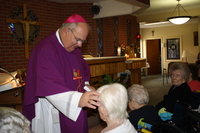
In
this Year for
Priests, my thoughts turn in particular to you, dear priests,
"ministers of the sick", signs and instruments of Christ's compassion
who must reach out to every person marked by suffering. I ask you, dear
presbyters, to spare no effort in giving them care and comfort. Time spent
beside those who are put to the test may bear fruits of grace for all the other
dimensions of pastoral care. Lastly I address you, dear sick people and I ask
you to pray and to offer your suffering up for priests, so that they may
continue to be faithful to their vocation and that their ministry may be rich
in spiritual fruits for the benefit of the whole Church.
Our Lady of Lourdes, pray for us.
Saint Richard Pampuri, pray for us.
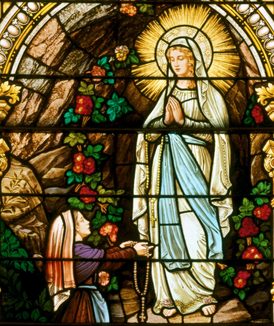
You have been blessed, O Virgin Mary, above all other women on earth by the Lord the most high God; he has so exalted your name that your praises shall never fade from the mouths of men.
In the recent weeks I've had to think more about the place of Mary, Mother of God (Theotokos) in Catholic theology, worship and personal devotion. This was especially keen when I took the negative position of a resolution on the worthiness of a believer's adherence to the phenomenon of Medjugorje. Marian piety is a strong reality in Catholicism and no good Catholic can claim being in communion with the believing community of faith if there is no adherence to some form of devotion to the Mother of God, Mary the Virgin. Today, the Church honors the Blessed Virgin Mary of Lourdes. Let me pose a points on what we believe viz. Marian doctrine.
We can begin thinking about the BVM in sacred Scripture, (e.g., the Annunciation or at the cross) the Apostolic Fathers and beyond but I want to limit ourselves to the Second Vatican Council and a other notable teachers of the Faith. Vatican II teaches us that Our Lady's intercession before the Throne of Grace is, in fact, long standing. Pope Paul VI speaks of Mary as the intercessor for unity among Christians and world peace, ultimately giving her the title of "Queen of Peace" (see the 1974 document Marialis cultus, 5 & 33). Developing the them of Mary's maternity based on Vatican II thinking, Pope John Paul II in his encyclical 1980 Dives in misericordia (no. 9) claims for us that Mary's motherhood the eternal Word of God has a special place in our own redemption. In other places John Paul also speaks of Mary's assistance in ecumenical work as the "Mother of Unity" and he reaffirms Pope Paul's "Queen of Peace" title.
Catholics always make distinctions. We have "public revelation" and "private revelation" when it comes to matters of faith and salvation. The teaching of the Church says that public revelation ended with the death of Saint John, the beloved disciple and evangelist. With John's death revelation is said to be closed as there were no other direct witnesses to the Resurrection of Jesus from the dead. Revelation, here, contains all that God has revealed to us in His Son, Jesus Christ. Since Christ established a Church to continue the ongoing work of salvation public revelation means that it is contained in sacred Scripture, Tradition and the Teaching of the Church: what has been handed down from Jesus, to the Apostles to the bishops and to us. We believe, therefore, that Jesus Christ is the fullness of revelation; He is the definitive revelation of God.
Revelation is considered private when something of the Paschal Mystery (the life, death, resurrection and ascension) of the Lord is made known to a saint, to Mary, or through contemplative prayer. While the Apostles were alive revelation continued to reveal some specific about the Lord as it concerns our salvation while private revelation does not add anything to what is already revealed in the public revelation. The contribution to our spiritual lives that a private revelation makes is a certain guidance, application, correction or exhortation. As examples of this would be the 14 Marian apparitions and saints like Faustina, Catherine of Siena, Margaret Mary Alacoque and Catherine Labouré. While all of things these saints have revealed to us assist us in our faith they are considered to be private revelation but with a prophetic quality to them. But the Church does not bind our consciences to believe these private revelations because they are not part of the revelation given to us through the apostles.
Private revelation, nonetheless, has a special place in theological reflection and must be considered sympathetically as there is an element of private revelation that is prophetic. Saint Thomas Aquinas writes, "in every period there have always been some who have the spirit of prophecy, not to set forth new teaching of the faith, but to give direction to human activities" (Summa theologiae II-II, 174, 6 ad 3).
The feast of Our Lady of Lourdes leads us to recall the infallible doctrine of the Immaculate Conception of Mary. This feast reminds us of the extraordinary events in 1858 when the Virgin Mary identified herself to Bernadette Soubirous on the banks of the Gave River near Lourdes, France as the Immaculate Virgin. The apparition of the Immaculate Virgin Mary came four years after the Church promulgated the dogma of the Immaculate Conception.
There were 18 apparitions with the last one on July 16, 1858.
The message given to Bernadette at Lourdes is a Gospel message: Mary calls all people to believe in the Gospel and always keeping in mind that God loves and cares for each of us. It is a "Prodigal Son" message of calling back sinners to a loving Father. This road of conversion to Christ is a personal, intimate encounter with the Lord. It is lived in the faith community of the Church. This is a message of healing of the heart and not only physical healing, which is one way of manifesting a spiritual healing. God's healing of the heart goes to the deepest places where we are often unaware.
Our prayer, then, is what the Church prays at Mass:
God of mercy, we celebrate the feast of Mary, the sinless mother of God. May her prayers help us to rise above our human weakness.
The story of Lourdes can be viewed here.
The story of the 67 miracles of Lourdes can heard here.
About the documentary of Lourdes.
In early June, Pope Benedict XVI travesl to Cyprus, the third largest island in the Mediterranean and a mixed group of religions. He's making a pastoral visit where he will give the Middle East bishops the Instrumentum laboris (the working document focusing the meeting) of the Synod of Bishops on the Eastern Churches due to be held next October in the Vatican. This is yet another example of the Pope reaching out to the local Catholic churches and to the Orthodox Christians, Muslims and political leaders. It is hard for me to say this is a strategic visit but it certainly opens the mind that there are significant reasons in the pope's mind as to why Cyprus and not another mixed culture. A good reason may be that he's been to the Holy Land already and that neither Lebanon, Egypt nor Syria are willing to host the pope. At any rate, Cyprus is a logical choice because of the confluence of faith and reason.
For those who don't know, Cyprus has a small Catholic community of the Maronite and Latin Churches. The Latin Church is governed by the Latin Patriarch of Jerusalem, His Beatitude, Archbishop Fouad Twal, and for centuries have been assisted by the Franciscan friars of the Custody of the Holy Land. Giampiero Sandionigi's interview with Franciscan Father Umberto Barato, a parish priest in Nicosia and Vicar General for Cyprus of the Latin Patriarchate follows in brief.
Father Barato, the Pope receives invitations from many governments and episcopates but cannot accept them all. How do you explain his decision to come to Cyprus, an island with, after all, a fairly small Catholic community?
I don't know how many invitations the Pope receives and from how many countries. I only know that he decided to accept the invitation of the Orthodox Archbishop of Cyprus, Chrysostomos II, and the President Dimitri Christofias. There had been a precedent and perhaps that also counted: John Paul II had wanted to visit the island but, due to questions of time and the Pope's poor health, he never made the journey. It is true that the Catholic community in Cyprus is small, but I do not think that this is a contra-indication. However that may be, I believe that Benedict XVI decided to make the visit prior to the Synod on the Middle East. In addition, he will also have thought about the political and religious situation of the island. It's not that the Pope can solve the problem of the division of Cyprus or tell the leaders what they should do, but his presence can give courage and a positive impulse to relations between the two sides.
When the trip was announced, some people imagined that it would have particular consequences on ecumenical dialogue at a European, or even global, level. What do you think about this? What are the daily relations between Catholics and Orthodox like in Cyprus, and with the Turkish Muslim minority?
It's natural that people think like that. Going to a country with an Orthodox majority, it is obvious that some people think that the meeting between the Pope and the leaders of the local Church can be ecumenical in character, that it is like a step ahead in the encounter, understanding and reciprocal acceptance. However, I do not believe that it can go further. I expect that after the visit, relations between the Catholic and Orthodox Churches in Cyprus will become even closer. They are already excellent and at a level that I do not believe can be found elsewhere in parts of the world where the two Churches coexist. I'll pass over the minor difficulties that sometimes we come up against. In general, these are the fruit of ignorance or prejudice fuelled by the long separation and reciprocal non-recognition between the two sides. The positive fact is that the Catholic Church in Cyprus is accepted, recognized and esteemed for its work of apostolate and education. There are already some forms of collaboration, but the Pope's visit will certainly be a privileged occasion for the bonds to become even closer. With the Muslims, on the contrary, we have no relations.
Someone who "gets it" is Capuchin Franciscan Archbishop Charles Chaput, archbishop of Denver. Whether it be culture, beauty, healthcare, abortion, immigrant rights, education, politics, preaching, I think the archbishop is a clear thinker and renders a fine and helpful assessment of Christian life and a Christians involvement in the world. Recently, Archbishop Chaput was in Rome to give a talk he titled, "The Prince of This World and the Evangelization of Culture" at the Fifth Symposium Rome: Priests and Laity on Mission. In this address the archbishop addresses questions of culture, beauty, anthropology, faith, evangelization and sin and grace.
What follows is only an excerpt of a longer talk that you can read at the link above. AND I recommend you read the entire text!
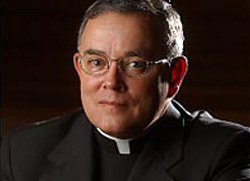
In 1929, as the great totalitarian murder-regimes began to rise up in Europe, the philosopher Raissa Maritain wrote a forgotten little essay called "The Prince of This World." It is worth reading. We need to remember her words today and into the future. With no trace of irony or metaphor, Maritain argued:
"Lucifer has cast the strong though invisible net of illusion upon us. He makes one love the passing moment above eternity, uncertainty above truth. He persuades us that we can only love creatures by making Gods of them. He lulls us to sleep (and he interprets our dreams); he makes us work. Then does the spirit of man brood over stagnant waters. Not the least of the devil's victories is to have convinced artists and poets that he is their necessary, inevitable collaborator and the guardian of their greatness. Grant him that, and soon you will grant him that Christianity is unpracticable. Thus does he reign in this world."
If we do not believe in the devil, sooner or later we will not believe in God. We cannot cut Lucifer out of the ecology of salvation. Satan is not God's equal. He is a created being subject to God and already, by the measure of eternity, defeated. Nonetheless, he is the first author of pride and rebellion, and the great seducer of man. Without him the Incarnation and Redemption do not make sense, and the cross is meaningless. Satan is real. There is no way around this simple truth.
Let me underline that even more strongly. Leszek Kolakowski, the former Marxist philosopher who died just last year, was one of the great minds of the last century. He was never a religious person in the traditional sense. But Kolakowski had few doubts about the reality of the devil. In his essay Short Transcript of a Metaphysical Press Conference Given by the Demon in Warsaw, on 20th December 1963, Kolakowski's devil indicts all of us who call ourselves "modern" Christians with the following words:
"Where is there a place [in your thinking] for the fallen angel? . . . Is Satan only a rhetorical figure? . . . Or else, gentlemen, is he a reality, undeniable, recognized by tradition, revealed in the Scriptures, commented upon by the Church for two millennia, tangible and acute? Why do you avoid me, gentlemen? Are you afraid that the skeptics will mock you, that you will be laughed at in satirical late night reviews? Since when is the faith affected by the jeers of heathens and heretics? What road are you taking? If you forsake the foundations of the faith for fear of mockery, where will you end? If the devil falls victim to your fear [of embarrassment] today, God's turn must inevitably come tomorrow. Gentlemen, you have been ensnared by the idol of modernity, which fears ultimate matters and hides from you their importance. I don't mention it for my own benefit - it is nothing to me - I am talking about you and for you, forgetting for a moment my own vocation, and even my duty to propagate error."
We live in an age that imagines itself as post-modern and post-Christian. It is a time defined by noise, urgency, action, utility and a hunger for practical results. But there is nothing really new about any of this. I think St. Paul would find our age rather familiar. For all of the rhetoric about "hope and change" in our politics, our urgencies hide a deep unease about the future; a kind of well-manicured selfishness and despair. The world around us has a hole in its heart, and the emptiness hurts. Only God can fill it. In our baptism, God called each of us in this room today to be his agents in that work. Like St. Paul, we need to be "doers of the word, and not hearers only" (Jas 1:22). We prove what we really believe by our willingness, or our refusal, to act on what we claim to believe.
But when we talk about a theme like today's topic - "Priests and laity together, changing and challenging the culture" - we need to remember that what we do, proceeds from who we are. Nothing is more dead than faith without works (Jas 2:17); except maybe one thing: works without faith. I do not think Paul had management issues in his head when he preached at the Areopagus. Management and resources are important - but the really essential questions, the questions that determine everything else in our life as Christians, are these: Do I really know God? Do I really love him? Do I seek him out? Do I study his word? Do I listen for his voice? Do I give my heart to him? Do I really believe he's there?
For more than 30 years, first as a bishop and now as the successor to St. Peter, Benedict XVI has spoken often and very forcefully about the "culture of relativism" that guides today's developed world, breaks down human community and intimacy, and drains the meaning out of human activity. That culture flows out of the "new Areopagus" John Paul II described in Redemptoris Missio - a culture formed by radically new technologies and methods of communication; a culture with a power that reshapes how we think, what we think about, and how we organize our personal and social lives.
We have an obligation as Catholics to study and understand the world around us. We have a duty not just to penetrate and engage it, but to convert it to Jesus Christ. That work belongs to all of us equally: clergy, laity and religious. We are missionaries. That is our primary vocation; it is hardwired into our identity as Christians. God calls each of us to different forms of service in his Church. But we are all equal in baptism. And we all share the same mission of bringing the Gospel to the world, and bringing the world to the Gospel.
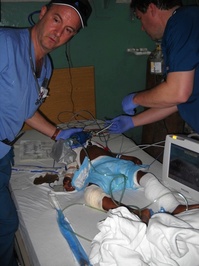 I've been getting daily updates from the CRUDEM folks in Haiti. I am sure many are keeping current on the efforts of those trying to help the earthquake victims. The stories of the tragedy and the human efforts sustained by God, I am convinced, move the heart.
I've been getting daily updates from the CRUDEM folks in Haiti. I am sure many are keeping current on the efforts of those trying to help the earthquake victims. The stories of the tragedy and the human efforts sustained by God, I am convinced, move the heart.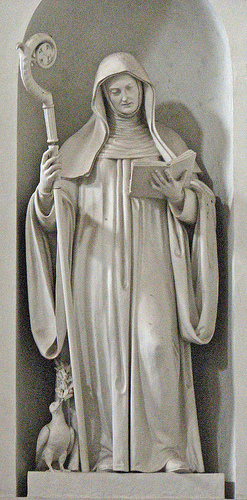
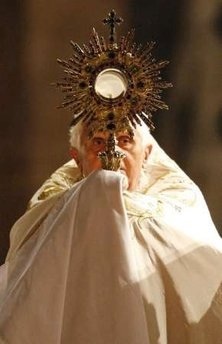 Periodically people ask about the practice of Adoration of the Blessed Sacrament. I typically find the questions interesting because it seems like we have forgotten the reasons why we adore the eucharistic Presence of Jesus Christ and this experience of eucharistic adoration is key for every Catholic and for every parish, school, hospital, convent, abbey, etc.
Periodically people ask about the practice of Adoration of the Blessed Sacrament. I typically find the questions interesting because it seems like we have forgotten the reasons why we adore the eucharistic Presence of Jesus Christ and this experience of eucharistic adoration is key for every Catholic and for every parish, school, hospital, convent, abbey, etc. 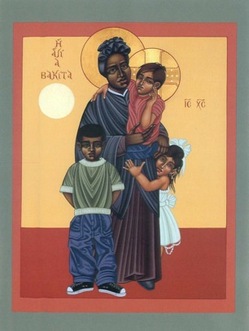 God, who drew blessed Josephine from abject servitude to
the dignity of being your daughter and a spouse of Christ, grant to us, we ask,
that by her example, we may follow the crucified Jesus with constant love, and
be lovingly ready to persevere in mercy.
God, who drew blessed Josephine from abject servitude to
the dignity of being your daughter and a spouse of Christ, grant to us, we ask,
that by her example, we may follow the crucified Jesus with constant love, and
be lovingly ready to persevere in mercy. 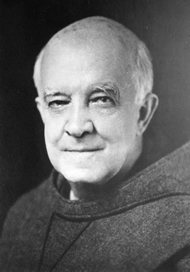
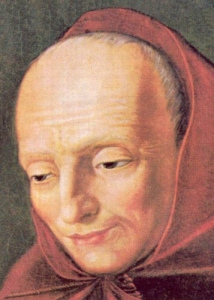 Come, you whom my Father has blessed; I was ill and you consoled me. Anything you did for one of my brothers, you did for me, says the Lord.
Come, you whom my Father has blessed; I was ill and you consoled me. Anything you did for one of my brothers, you did for me, says the Lord.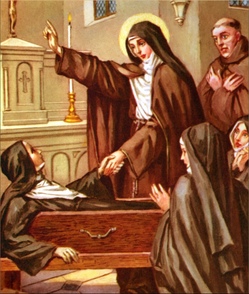
Let us rejoice and shout for joy, because the Lord of all things has favored this holy and glorious virgin with his love.
God, our Father, You set Saint Colette as an example and leader of evangelical perfection for many virgins. Grant that the spirit of Saint Francis which she wisely taught and wondrously confirmed by her holy example may ever abide in us.
Following the death of her parents, Colette, with permission of the ecclesial authorities remained hidden from the world in a room next a church where a window allowed her to adore the Blessed Sacrament. Essentially she adopted an ancient form of religious life as an anchoress. Colette embraced the rule of the Third Order of St. Francis, desiring to live in perfect poverty, severe mortification, and constant prayer in order to become like the Seraphic Father. The life she was graced to live had bountiful consolations but she faced severe temptations and even corporal abuse from Satan. Who, by the way, is clearly instrumental in trying to bring the Church to her knees.
Because her life as a Third Order Franciscan an interest developed to know more about the life of Saint Clare and the early Poor Clare rule where the ideal was to live in strict observance of the rule of Saint Clare. By this time, history indicates that even the Poor Clares were a bit economical in living the life Clare envisioned. Discerning that her call in life was not to take an active role in re-forming the Poor Clare observance, Colette dismissed the desires she had entertained. The problem was that these desires resurfaced time-and-again to the extent that she discovered that God, not the devil, placed the desire of reform in her heart. Rather boldly God got Colette's attention by striking her dumb and blind, until she finally resigned herself to the will of God, like some notable biblical figures. Acknowledging the will of God, her speech and her sight were restored.
You know the scenario: God never asks you to do something without giving the grace to accomplish the task. A spiritual father given to Colette to guide her spiritual life so that she could what the Lord required. As preparation, Colette spent four years on before receiving the blessing of the pope to establish one convent of Poor Clares. In time the charism Colette proposed was corresponding to women's desires that in her lifetime Colette seventeen monasteries were founded under her inspiration. In the USA, the Colettine Poor Clares have a number of monasteries. One foundation that I would like to highlight is the Bethlehem Monastery of the Poor Clares, Barhamsville, VA.
Grace upon grace was given to Colette for saving souls for Christ that in a vision she saw souls falling into hell more swiftly than the snowflakes in a winter's storm. At once she knew her mission.
Saint Colettes's devotion to the Passion
of Our Lord was evident which enabled her to make sacrifices to do what the
Lord wanted. With her friend, the Dominican, Saint Vincent Ferrer, she is
considered most responsible for the end of the Great Western Schism when the
Popes resided at Avignon, France between 1378 and 1417. Some Dominicans will likely dispute this claim, but as history is written on this period in Church history, Colette and Vincent seem to more key in papal correction than Saint Catherine of Siena is, but the latter's influence is no doubt significant. The unity of the Church
was a stake when Colette and Vincent wrote to the Fathers in council at
Constance guiding them on how to deal with John XXIII, Benedict XIII, and
Gregory XII. They proposed the deposing of Benedict XIII in order for a new
election.
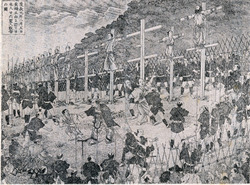 God, our Father, source of strength for all Your
saints, You led Peter Baptist, Paul Miki, and their companions through the
sufferings of the cross to the joy eternal life. May their prayers give us the
courage to be loyal until death in professing our faith.
God, our Father, source of strength for all Your
saints, You led Peter Baptist, Paul Miki, and their companions through the
sufferings of the cross to the joy eternal life. May their prayers give us the
courage to be loyal until death in professing our faith.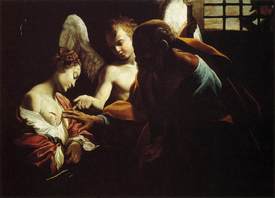
Prayer to Saint Agatha
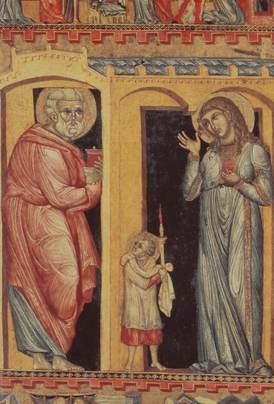
O glorious Saint Agatha, through whose intercession in Christ I hope for the restored health of body and soul hasten to lead me to the true Good, God alone. By your intercession O blessed Agatha, may I ever enjoy your protection by faithfully witnessing to Christ. You invite all who come to you to enjoy the treasure of communion with the Holy Trinity. Moreover, if it be for God's greater glory and the good of my person, please intercede for me with the request of [mention request here].
Saint Agatha, you found favor with God by your chastity and by your courage in suffering death for the gospel. Teach me how to suffer with cheerfulness, uniting myself to Christ crucified with a simplicity and purity of heart. Amen.
Saint Agatha, eloquent witness of Jesus Christ as Savior, pray for us.
Saint Agatha, the martyr who says to Jesus, "possess all that I am," pray for us.
Saint Agatha, concerned with the welfare of all God's children, pray for us.
Saint Agatha, pray for us.
The Church observes the liturgical memorial of Saint
Agatha on February 5th each year by offering the Sacrifice of the Mass and the
Divine Office with the Sacrament of Anointing of the Sick for those living with
diseases of the breast. The imprimatur for this prayer is given by Henry
J. Mansell, Archbishop of Hartford, 2007. Copyright © Paul A. Zalonski.
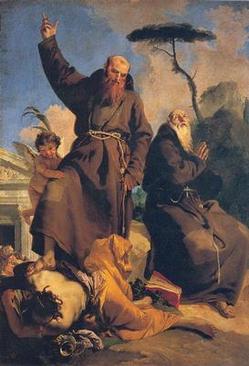 How beautiful on the mountains are the feet of the man who brings tidings of peace, joy and salvation.
How beautiful on the mountains are the feet of the man who brings tidings of peace, joy and salvation.I marveled at the Pope's General Audience address on Saint Francis of Assisi last week. He's given us more food to digest this week. Of course, I believe both of these addresses are the Pope's corrective of the two great Orders of the Church. In many places both the Dominicans and the Franciscans have unhinged themselves from the living architecture of the Church and the Pope recognizes that we need these two charisms (and others, as well) to help the faith really thrive. I hope the Dominicans and Franciscans get the hint: if not, then we're in trouble. Benedict XVI is telling us what's in his heart and on his mind in these addresses, I hope the readers can read between the lines and do the hard work in reforming both groups of Friars.
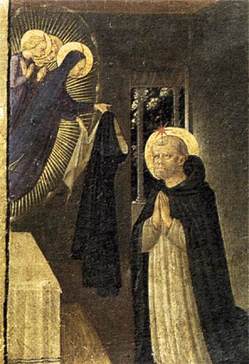
Last week I presented the luminous figure of Francis of Assisi; today I would like to speak to you of another saint who, in the same period, made an essential contribution to the renewal of the Church of his time. It is St. Dominic, the founder of the Order of Preachers, known also as the Dominican Friars.
His successor in the leadership of the order, Blessed Giordano di Saxony, gives a complete portrait of St. Dominic in the text of a famous prayer: "Inflamed by zeal for God and supernatural ardor, by your limitless charity and the fervor of a vehement spirit, you consecrated yourself wholly with the vow of perpetual poverty to apostolic observance and to evangelical preaching." It is in fact this essential feature of Dominic's witness that is underlined: He always spoke with God and about God. In the life of saints, love of the Lord and of neighbor, the seeking of God's glory and the salvation of souls always go together.
Dominic was born in Spain, in Caleruega, around 1170. He belonged to a noble family of Old Castille and, supported by an uncle priest, he was educated in a famous school of Palencia. He was distinguished immediately for his interest in the study of sacred Scripture and for his love of the poor, to the point of selling books, which in his time constituted a good of great value, to help victims of famine with what he collected.
Ordained a priest, he was elected canon of the chapter of the cathedral in his native diocese, Osma. Although this appointment could represent for him some motive of prestige in the Church and in society, he did not interpret it as a personal privilege, or as the beginning of a brilliant ecclesiastical career, but as a service to render with dedication and humility. Is not perhaps the temptation to a career, to power, a temptation to which not even those who have a role of leadership and governance in the Church are immune? I recalled this a few months ago, during the consecration of some bishops: "We do not seek power, prestige or esteem for ourselves. [...] We know how in civil society and often also in the Church things suffer because many people on whom responsibility has been conferred work for themselves rather than for the community" (Homily, Cappella Papale per l'Ordinazione episcopale di cinque Ecc. mi Presuli, Sept. 12, 2009).
The bishop of Osma, who was named Diego, a true and zealous pastor, very soon noticed the spiritual quality of Dominic, and wished to make use of his collaboration. Together they went to Northern Europe to carry out diplomatic missions entrusted to them by the king of Castille.
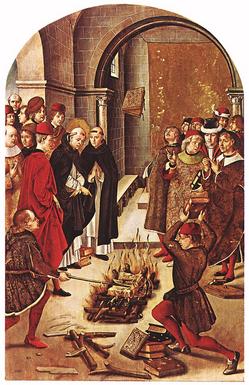
While traveling, Dominic became aware of two great challenges for the Church of his time: the existence of people who were not yet evangelized, in the northern limits of the European continent, and the religious scourge that weakened Christian life in southern France, where the action of some heretical groups created disturbance and a falling away from the truth of the faith. Missionary work on behalf of those who do not know the light of the Gospel and the work of re-evangelization of the Christian community thus became the apostolic goals that Dominic intended to pursue. It was the Pope, to whom Bishop Diego and Dominic went to ask advice, who requested the latter to dedicate himself to preaching to the Albigensians, a heretical group which held a dualistic concept of reality, that is, of two equally powerful creative principles, Good and Evil. This group, consequently, had contempt for matter as coming from the principle of evil, even rejecting marriage, and reaching the point of denying the incarnation of Christ, the sacraments in which the Lord "touches" us through matter, and the resurrection of bodies. The Albigensians esteemed a poor and austere life -- in this sense they were even exemplary -- and they criticized the wealth of the clergy of that time.
Dominic accepted this mission enthusiastically, which he carried out precisely with the example of his poor and austere existence, with the preaching of the Gospel and with public debates. He dedicated the rest of his life to this mission of preaching the Good News. His sons would fulfill St. Dominic's other dreams: the mission ad gentes, that is, to those who did not yet know Jesus, and the mission to those who lived in the city, especially in the universities, where new intellectual tendencies were a challenge for the faith of the well-educated.
This great saint reminds us that a missionary fire must always burn in the heart of the Church, which drives incessantly to take the first proclamation of the Gospel and, where necessary, to a new evangelization: Christ is, in fact, the most precious good that men and women of all times and all places have the right to know and to love! And it is consoling to see how also in the Church of today there are so many -- pastors and lay faithful, members of old religious orders and of new ecclesial movements -- that with joy spend their life for this supreme ideal: to proclaim and witness the Gospel!
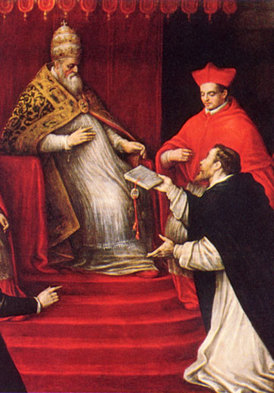
Other men associated themselves to Dominic Guzmán, attracted by the same aspiration. Thus, gradually, from the first foundation of Tolosa, was born the Order of Preachers. Dominic, in fact, in full obedience to the directives of the Popes of his time, Innocent III and Honorius III, adopted the ancient Rule of St. Augustine, adapting it to the needs of apostolic life, which led him and his companions to preach, moving from one post to another, but returning, later, to their own monasteries, places of study, prayer and community life. In a particular way, Dominic wished to highlight two values considered indispensable for the success of the evangelizing mission: community life in poverty and study.
First of all, Dominic and the Friars Preachers presented themselves as mendicants, that is, without vast properties of land to administer. This element rendered them more available for study and itinerant preaching and constituted a concrete witness for the people. The internal government of the Dominican monasteries and provinces was structured on the system of chapters, which elected their own superiors, confirmed later by major superiors; hence, an organization that stimulated fraternal life and the responsibility of all the members of the community, exacting strong personal convictions. The choice of this system stemmed precisely from the fact that the Dominicans, as preachers of the truth of God, had to be consistent with what they proclaimed. Truth studied and shared in charity with brothers is the most profound foundation of joy. Blessed Giordano of Saxony said of St. Dominic: "He received every man in the great bosom of charity and, because he loved everyone, everyone loved him. He made a personal law for himself of being joyful with happy persons and of weeping with those who wept" (Libellus de principiis Ordinis Praedicatorum autore Iordano de Saxonia, ed. H.C. Scheeben, [Monumenta Historica Sancti Patris Nostri Dominici, Romae, 1935]).
In the second place, with a courageous gesture Dominic wished that his followers acquire a solid theological formation, and he did not hesitate to send them to the universities of the time, even though not a few ecclesiastics regarded with diffidence these cultural institutions. The Constitutions of the Order of Preachers give great importance to study as preparation for the apostolate. Dominic wanted his friars to dedicate themselves to study, sparing no effort, with diligence and compassion -- to study founded on the soul of all theological learning, that is, on sacred Scripture, and respectful of the questions posed by reason.
The development of culture imposes on those who carry out the ministry of the Word, at various levels, to be well prepared. Hence I exhort all, pastors and laity, to cultivate this "cultural dimension" of faith, so that the beauty of the Christian truth can be better understood and faith can be truly nourished, reinforced and also defended. In this Year for Priests, I invite seminarians and priests to appreciate the spiritual value of study. The quality of the priestly ministry depends also on the generosity with which one applies oneself to the study of revealed truths.
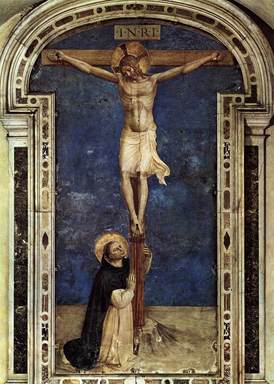
Dominic, who wished to found a religious Order of Preachers-Theologians, reminds us that theology has a spiritual and pastoral dimension, which enriches the spirit and life. Priests, consecrated persons and also all the faithful can find a profound "interior joy" in contemplating the beauty of the truth that comes from God, truth that is always up-to-date and always living. Hence, the motto of the Friars Preachers -- contemplata aliis tradere -- helps us to discover a pastoral yearning in the contemplative study of such truth, by the need to communicate to others the fruit of one's contemplation.
When Dominic died in 1221 in Bologna, the city that declared him its patron, his work had already had great success. The Order of Preachers, with the support of the Holy See, had spread to many countries of Europe to the benefit of the whole Church. Dominic was canonized in 1234, and it is he himself, with his sanctity, who indicates to us two indispensable means for apostolic action to be incisive. First of all, Marian devotion, which he cultivated with tenderness and which he left as precious legacy to his spiritual children, who in the history of the Church have had the great merit of spreading the prayer of the holy rosary, so dear to the Christian people and so rich in evangelical values, a true school of faith and piety. In the second place, Dominic, who took care of some women's convents in France and in Rome, believed profoundly in the value of intercessory prayer for the success of apostolic work. Only in Paradise will we understand how much the prayer of the cloistered effectively supports apostolic action! To each one of them I direct my grateful and affectionate thoughts.
Dear brothers and sisters, may Dominic
Guzmán's life spur all of us to be fervent in prayer, courageous in living the
faith, profoundly in love with Jesus Christ. Through his intercession, we ask
God to enrich the Church always with genuine preachers of the Gospel.

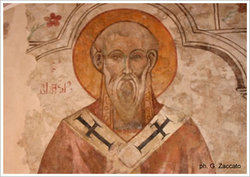

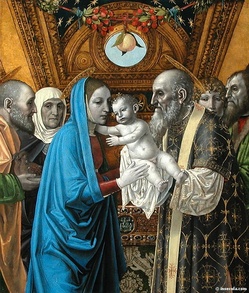
He comes, her Lord and her Betrothed.
Let bride and Bridegroom, by faith's light,
A vigil keep throughout the night.
Saint Simeon, go forth in joy.
Exult to see the baby Boy:
Make known to all the Light divine
That soon on ev'ry land shall shine.
His parents to the temple bring
The Temple as an offering
The righteousness of law He chose
Though to the law He nothing owes.
So, Mary, bring this little one,
Yours and the Father's only Son
Through whom our offering is made
By whom our ransom price is paid.
And forward, royal Virgin, go
And let rejoicing overflow
With gifts bring forth your newborn Son
Who comes to rescue everyone.
Lord Jesus Christ, the Glory bright
Who guides the nations into light
Be praised, and for eternity
Be glorified, O Trinity. Amen.
Text by
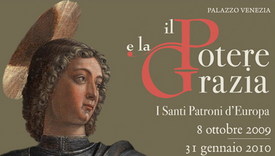
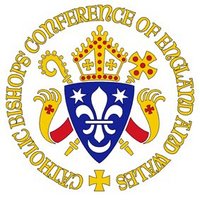
This last week the Pope has meeting individually and collectively with the bishops of England and Wales. As you know, a bishop is obliged to pray at the tombs of Saints Peter and Paul and to offer a review of the pastoral activities of the diocese he leads to the Pope and to his curia. It is a visit to "the threshold" (ad Limina) to the center of our faith. Over the past years the bishops of Britain have faced some serious challenges--much like the bishops of the USA and Canada-- and have not responded effectively enough to certain matters of faith and morals. The British bishops are your typical "old boys" network, a closed group of men sitting on their laurels. Generally speaking the UK bishops are not very unified in their teaching the faith which was a hallmark of Cardinal Murphy-O'Connor; one clear indication of this is the work of Bishop O'Donoghue that was posted here calling for clear catechesis, witness and liturgical practice (read two things here and here). In the Pope's address to the bishops at the end of their to visit Peter, you can see the matters that concern the pope and the Church at large. The papal address at the end of any visit of an episcopal conference is an interesting thing to read because Rome is a bit more objective in reading the tea leaves than those living in situ. General rule of thumb: if it finds its way into print, then it is important to recall. Plus, the Pope is rather subtle in his addresses such that you have to read between the lines. And you may ask why is this text important for North America. Catholics on both sides of the Atlantic face the very same issues when it comes to proposing the faith, moral living, ecumenism and sacramentality. What the Pope told the UK bishops is to be applied in the USA: the old way of doing things has ended. All but 2 paragraphs of the address are given here with my own emphasis on certain points.
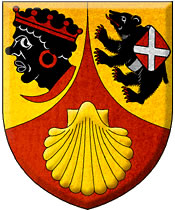
I welcome all of you on your ad Limina visit to Rome, where you have come to venerate the tombs of the Apostles Peter and Paul. I thank you for the kind words that Archbishop Vincent Nichols has addressed to me on your behalf, and I offer you my warmest good wishes and prayers for yourselves and all the faithful of England and Wales entrusted to your pastoral care. Your visit to Rome strengthens the bonds of communion between the Catholic community in your country and the Apostolic See, a communion that sustained your people's faith for centuries, and today provides fresh energies for renewal and evangelization. Even amid the pressures of a secular age, there are many signs of living faith and devotion among the Catholics of England and Wales. I am thinking, for example, of the enthusiasm generated by the visit of the relics of Saint Thérèse, the interest aroused by the prospect of Cardinal Newman's beatification, and the eagerness of young people to take part in pilgrimages and World Youth Days. On the occasion of my forthcoming Apostolic Visit to Great Britain, I shall be able to witness that faith for myself and, as Successor of Peter, to strengthen and confirm it. During the months of preparation that lie ahead, be sure to encourage the Catholics of England and Wales in their devotion, and assure them that the Pope constantly remembers them in his prayers and holds them in his heart.
Your country is well known for its firm commitment to equality of opportunity for all members of society. Yet as you have rightly pointed out, the effect of some of the legislation designed to achieve this goal has been to impose unjust limitations on the freedom of religious communities to act in accordance with their beliefs. In some respects it actually violates the natural law upon which the equality of all human beings is grounded and by which it is guaranteed. I urge you as Pastors to ensure that the Church's moral teaching be always presented in its entirety and convincingly defended. Fidelity to the Gospel in no way restricts the freedom of others - on the contrary, it serves their freedom by offering them the truth.
Continue to insist upon your right to participate in national debate through respectful dialogue with other elements in society. In doing so, you are not only maintaining long-standing British traditions of freedom of expression and honest exchange of opinion, but you are actually giving voice to the convictions of many people who lack the means to express them: when so many of the population claim to be Christian, how could anyone dispute the Gospel's right to be heard?
If the full saving message of Christ is to be presented effectively and convincingly to the world, the Catholic community in your country needs to speak with a united voice. This requires not only you, the Bishops, but also priests, teachers, catechists, writers - in short all who are engaged in the task of communicating the Gospel - to be attentive to the promptings of the Spirit, who guides the whole Church into the truth, gathers her into unity and inspires her with missionary zeal.
Make it your concern, then, to draw on the considerable gifts of the lay faithful in England and Wales and see that they are equipped to hand on the faith to new generations comprehensively, accurately, and with a keen awareness that in so doing they are playing their part in the Church's mission. In a social milieu that encourages the expression of a variety of opinions on every question that arises, it is important to recognize dissent for what it is, and not to mistake it for a mature contribution to a balanced and wide-ranging debate. It is the truth revealed through Scripture and Tradition and articulated by the Church's Magisterium that sets us free. Cardinal Newman realized this, and he left us an outstanding example of faithfulness to revealed truth by following that "kindly light" wherever it led him, even at considerable personal cost. Great writers and communicators of his stature and integrity are needed in the Church today, and it is my hope that devotion to him will inspire many to follow in his footsteps.
Much attention has rightly been given to Newman's scholarship and to his extensive writings, but it is important to remember that he saw himself first and foremost as a priest. In this Annus Sacerdotalis, I urge you to hold up to your priests his example of dedication to prayer, pastoral sensitivity towards the needs of his flock, and passion for preaching the Gospel. You yourselves should set a similar example. Be close to your priests, and rekindle their sense of the enormous privilege and joy of standing among the people of God as alter Christus. In Newman's words, "Christ's priests have no priesthood but His ... what they do, He does; when they baptize, He is baptizing; when they bless, He is blessing" (Parochial and Plain Sermons, VI 242). Indeed, since the priest plays an irreplaceable role in the life of the Church, spare no effort in encouraging priestly vocations and emphasizing to the faithful the true meaning and necessity of the priesthood. Encourage the lay faithful to express their appreciation of the priests who serve them, and to recognize the difficulties they sometimes face on account of their declining numbers and increasing pressures. The support and understanding of the faithful is particularly necessary when parishes have to be merged or Mass times adjusted. Help them to avoid any temptation to view the clergy as mere functionaries but rather to rejoice in the gift of priestly ministry, a gift that can never be taken for granted.
Ecumenical and inter-religious dialogue assume great importance in England and Wales, given the varied demographic profile of the population. As well as encouraging you in your important work in these areas, I would ask you to be generous in implementing the provisions of the Apostolic Constitution Anglicanorum Coetibus, so as to assist those groups of Anglicans who wish to enter into full communion with the Catholic Church. I am convinced that, if given a warm and open-hearted welcome, such groups will be a blessing for the entire Church.
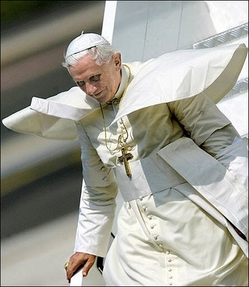 Pope Benedict asks us to keep in mind the following
two intentions for the coming month of February. These intentions, as in our intentions offered in prayer show what Christ's word means in all of its richness, the truth. He or she who prays understands, knows, does the will of God, as von Balthasar would say. So, pray for these intentions.
Pope Benedict asks us to keep in mind the following
two intentions for the coming month of February. These intentions, as in our intentions offered in prayer show what Christ's word means in all of its richness, the truth. He or she who prays understands, knows, does the will of God, as von Balthasar would say. So, pray for these intentions.